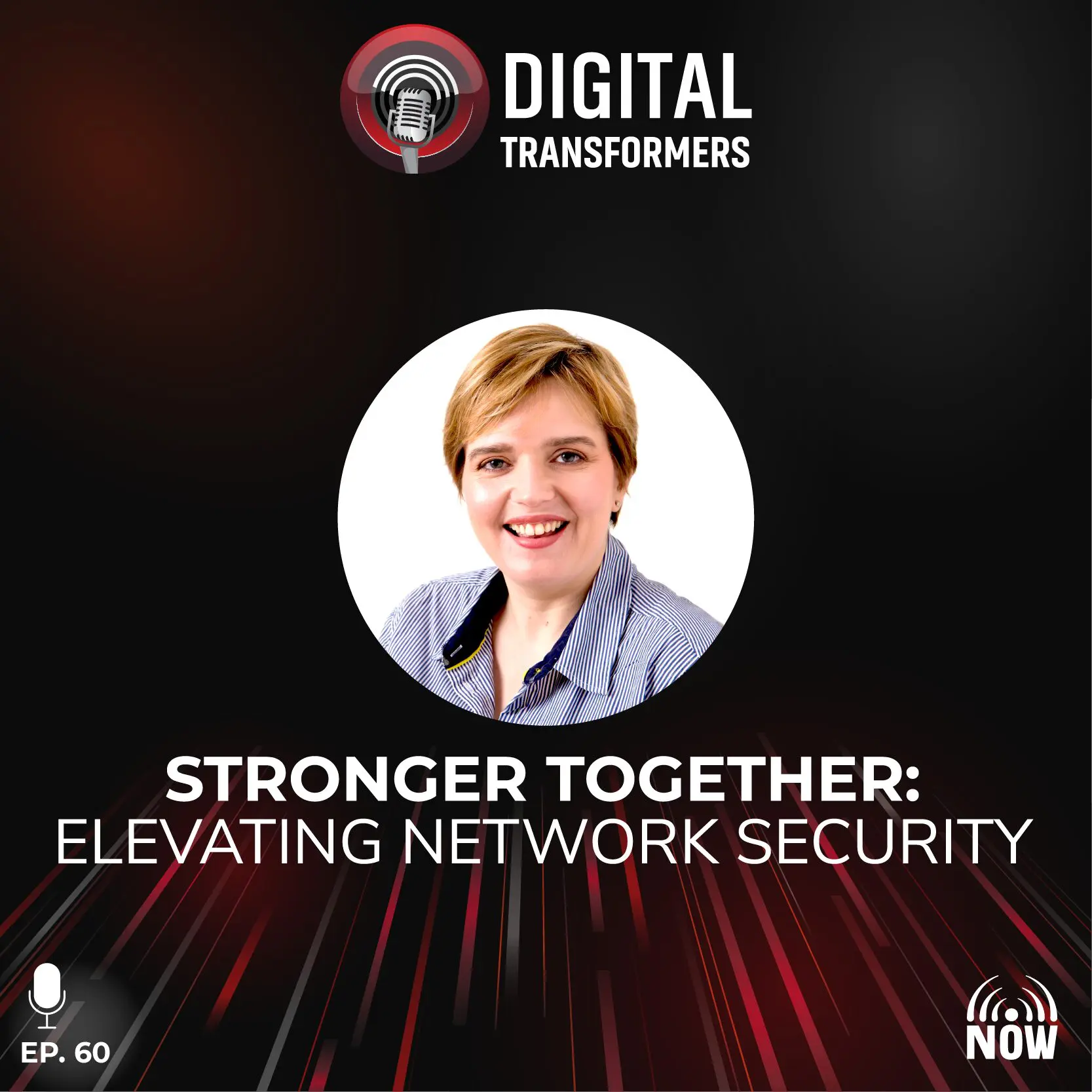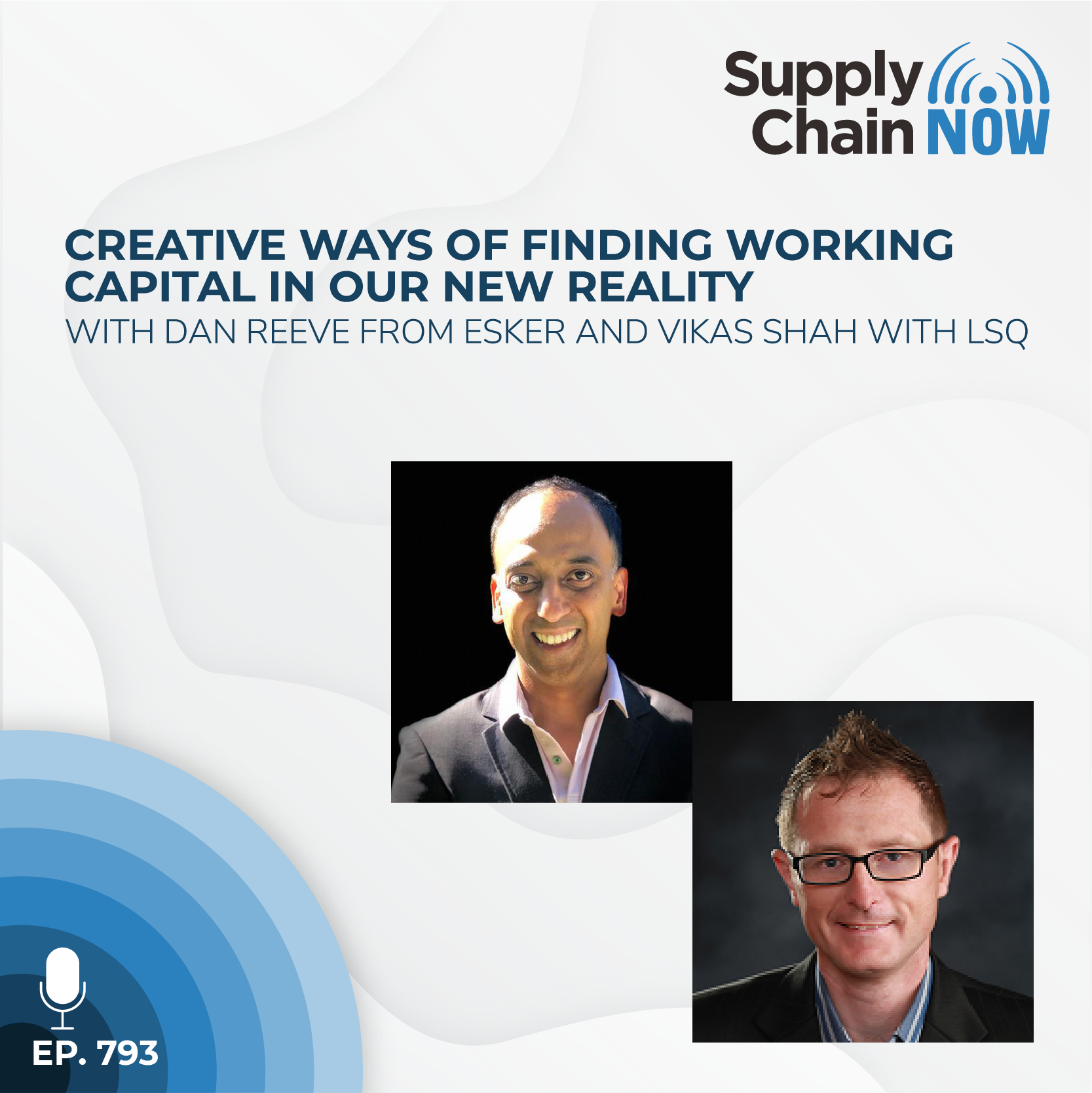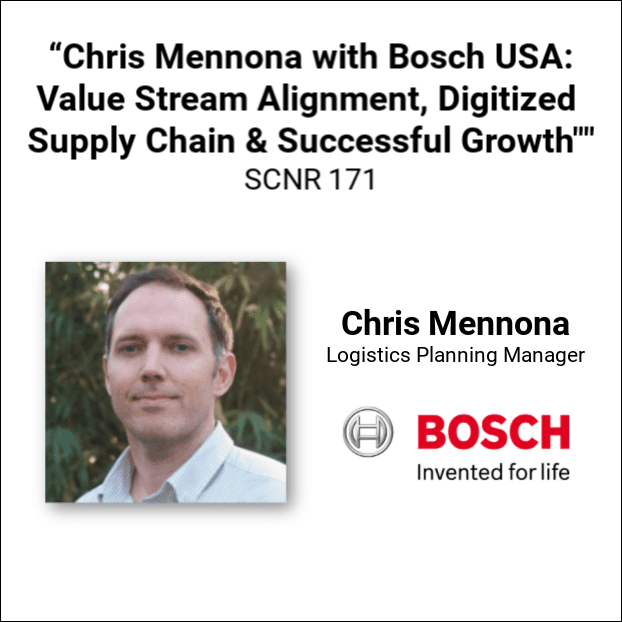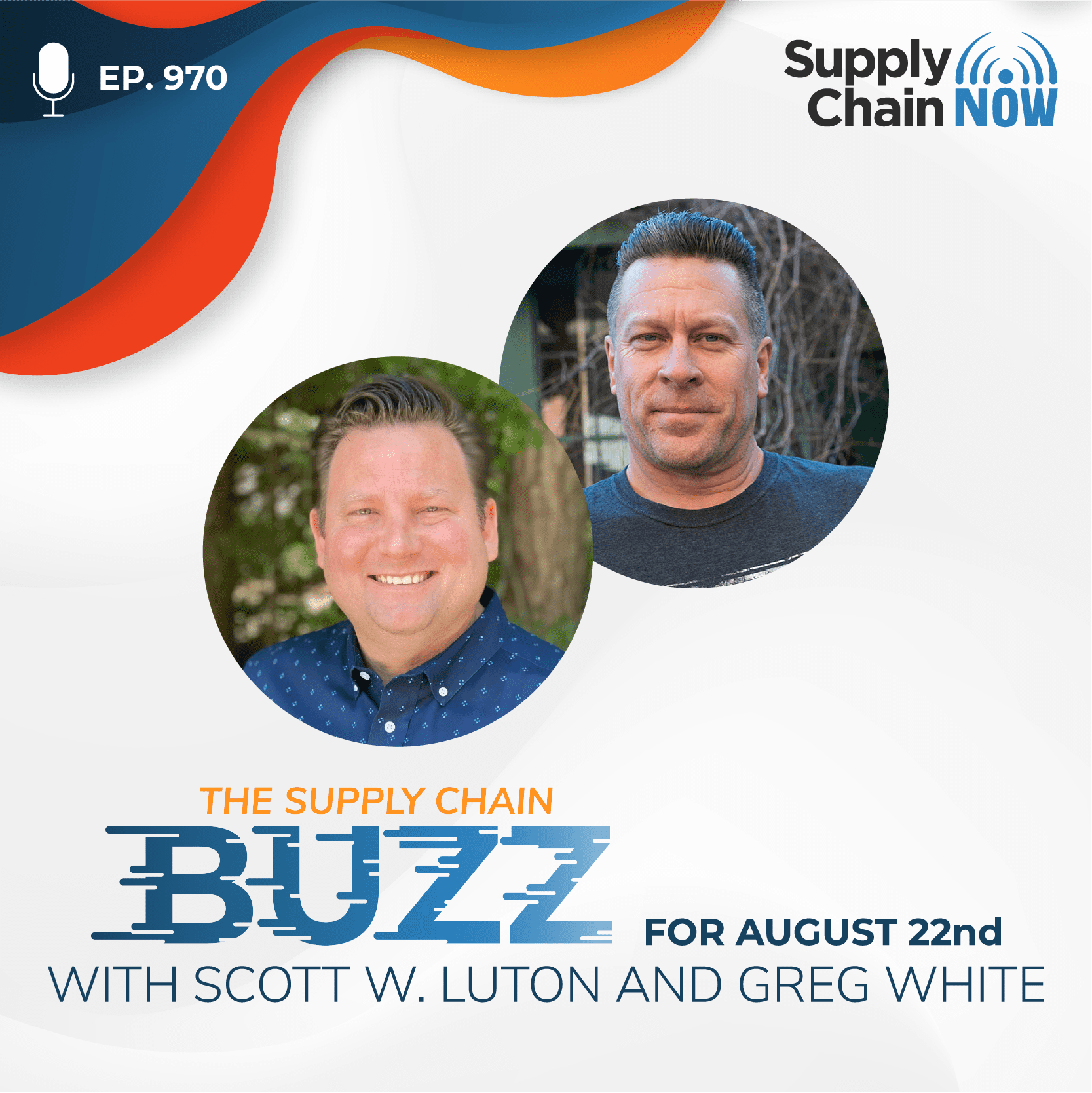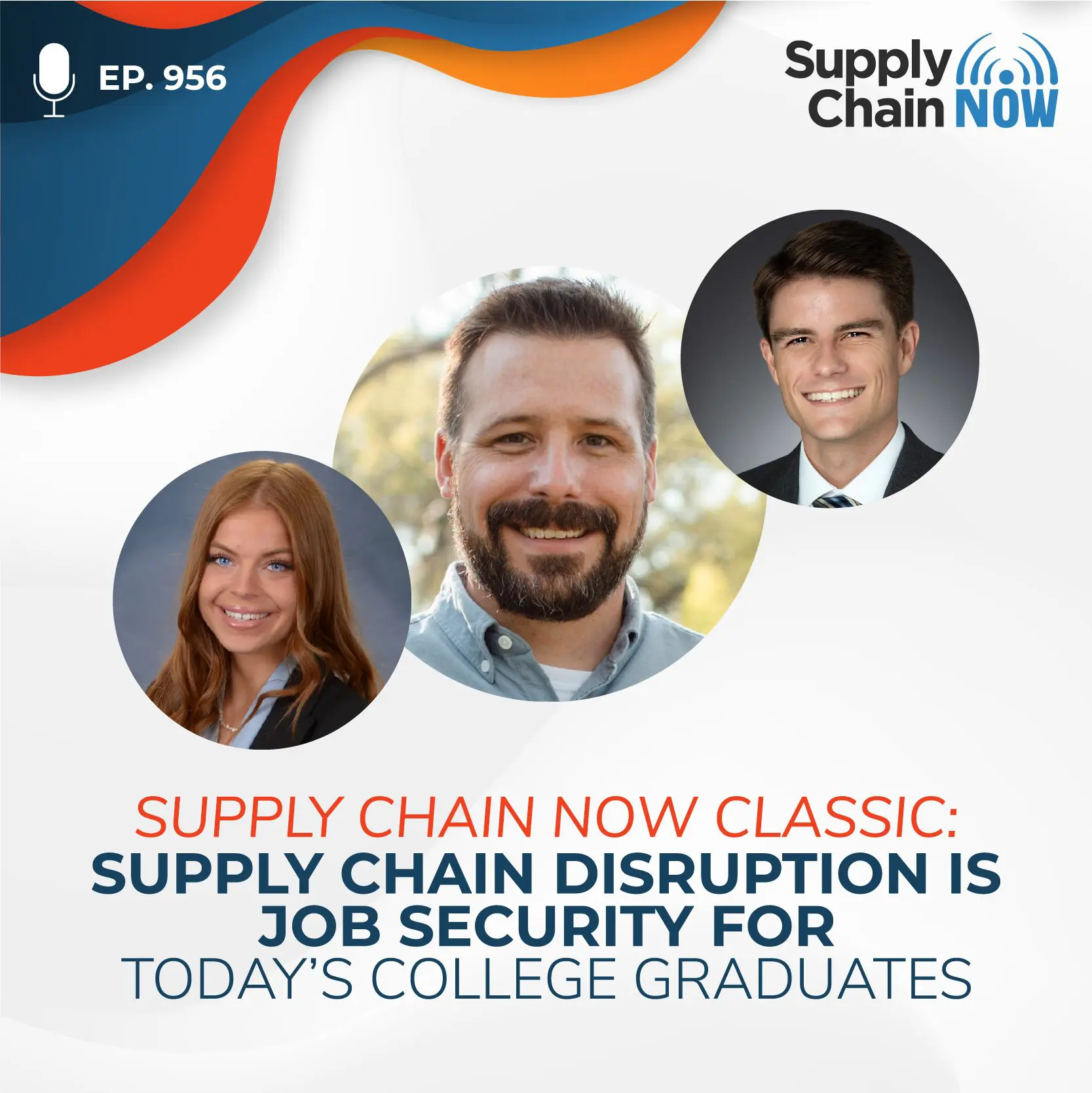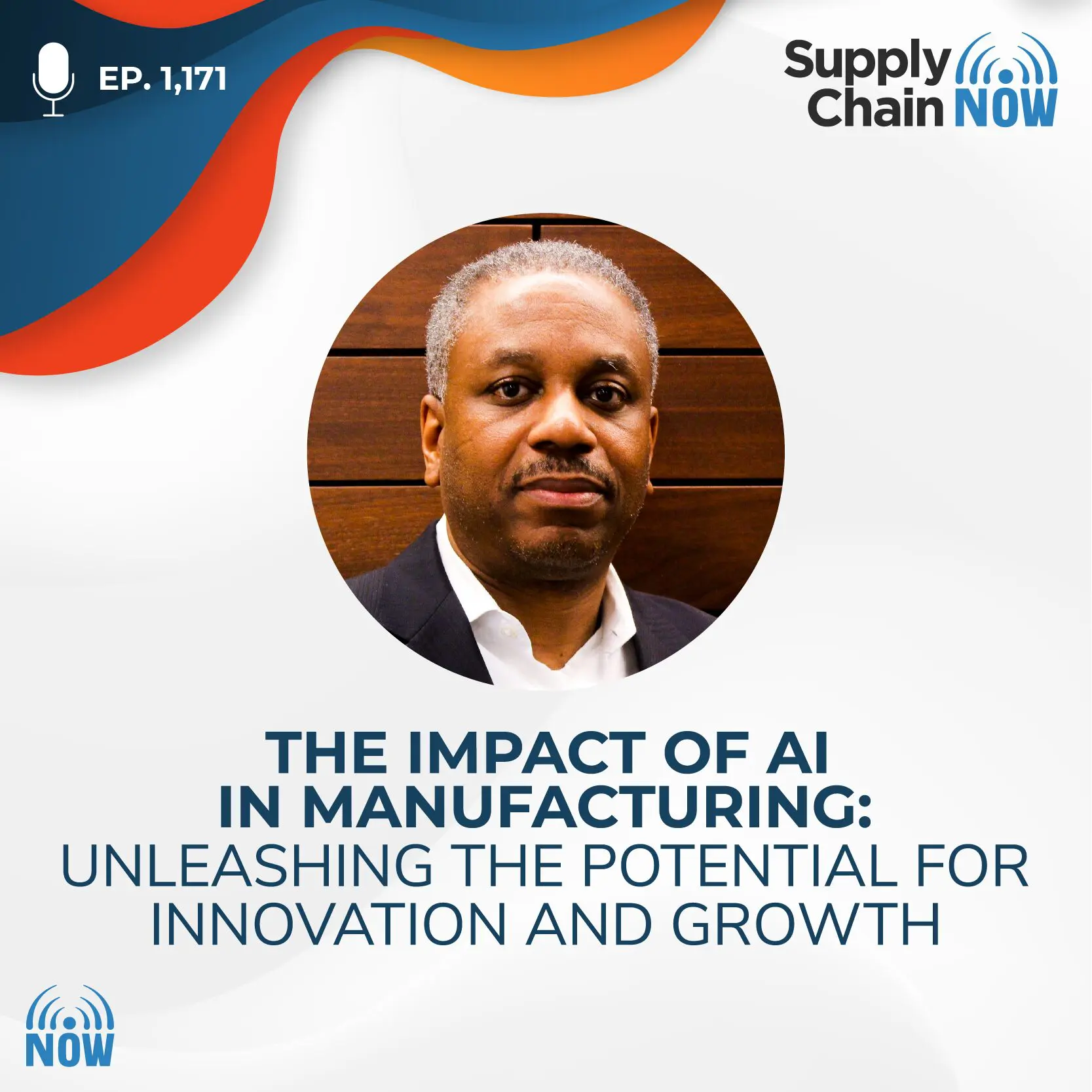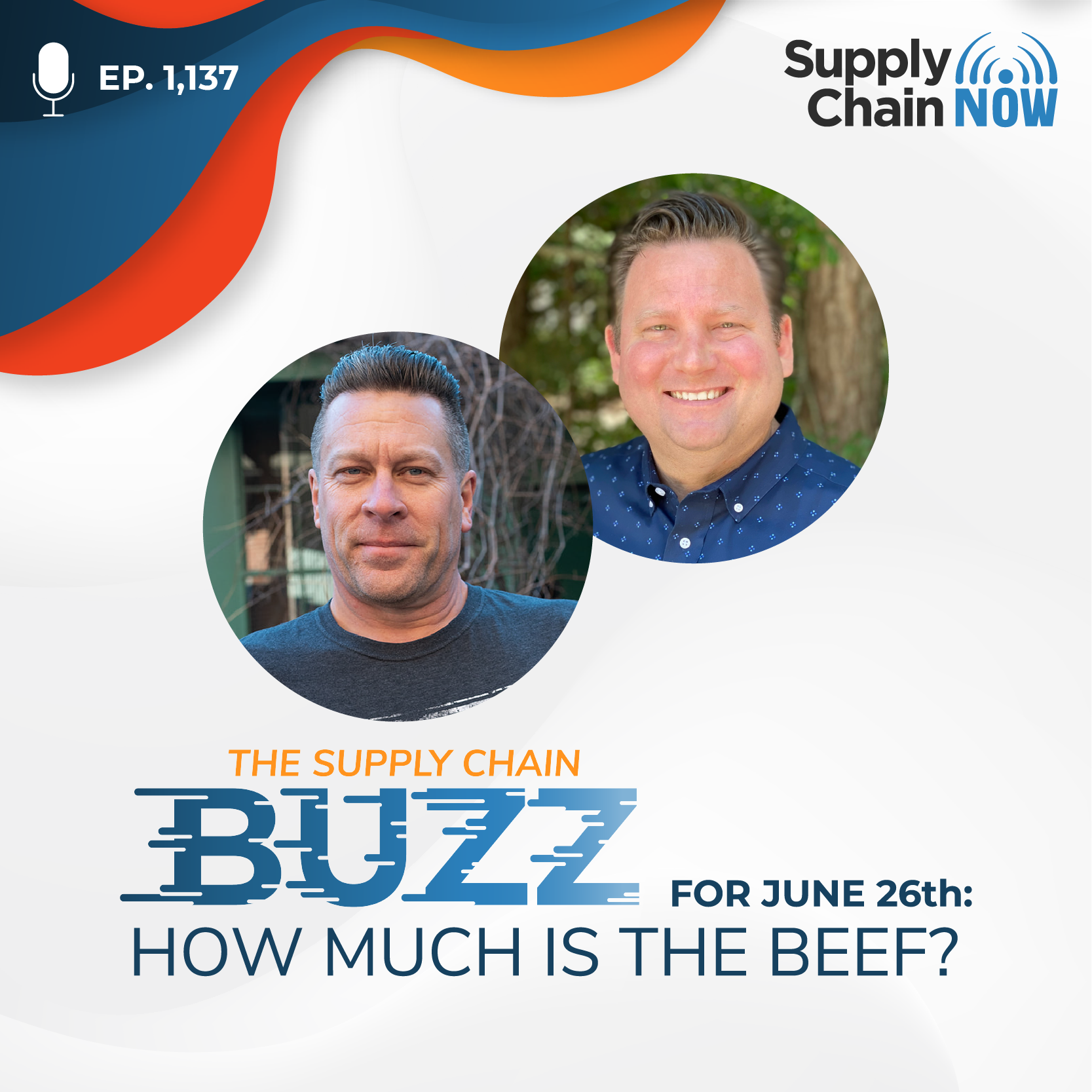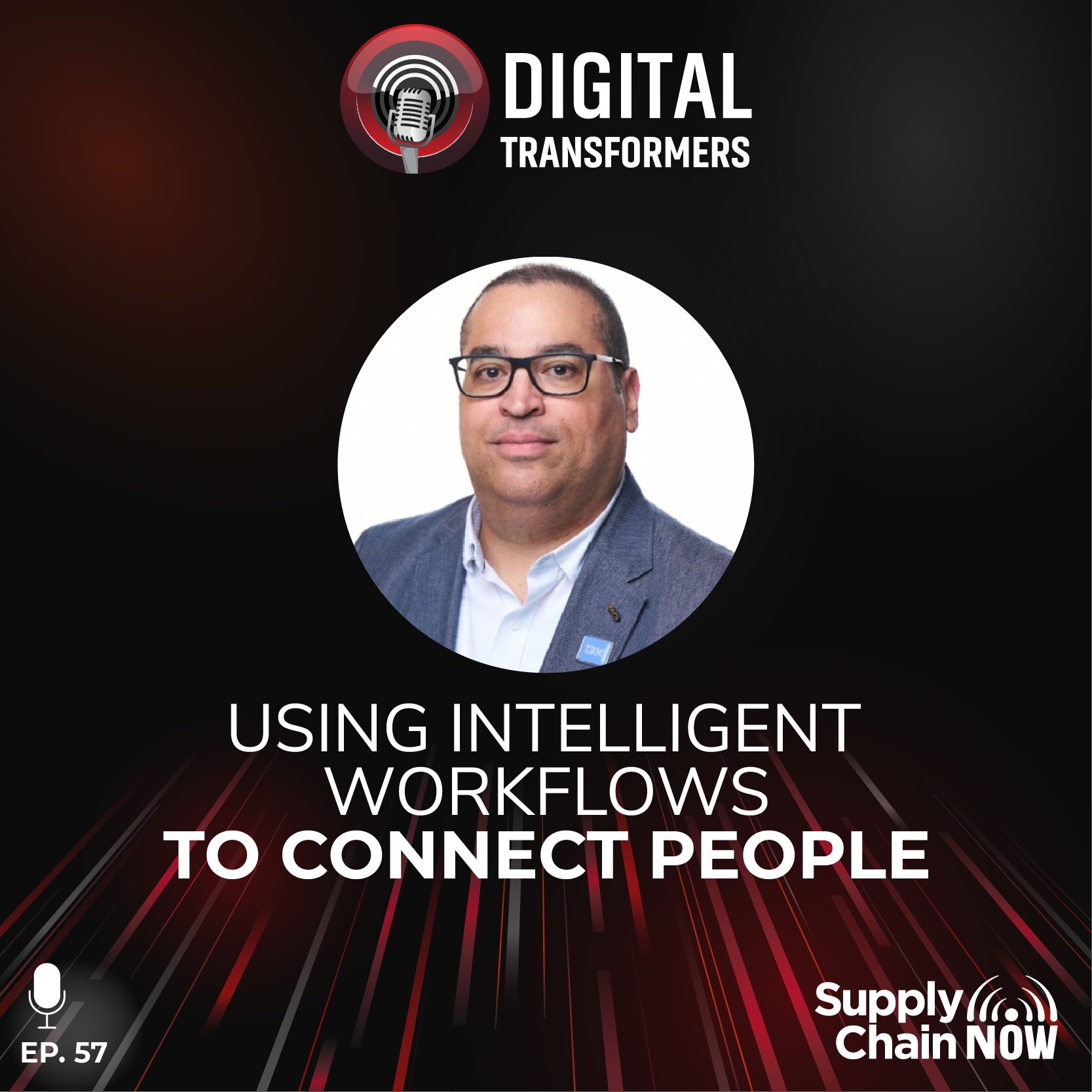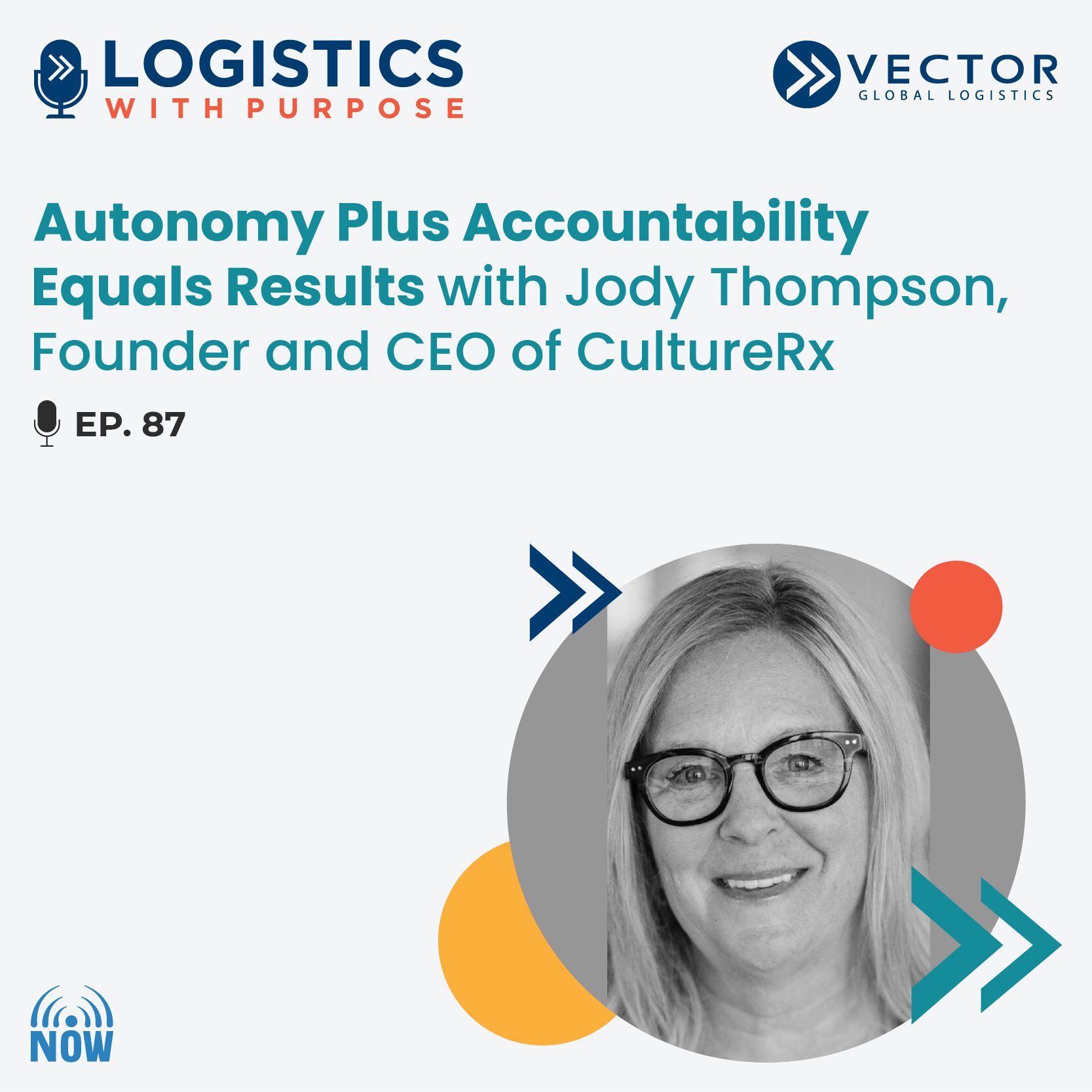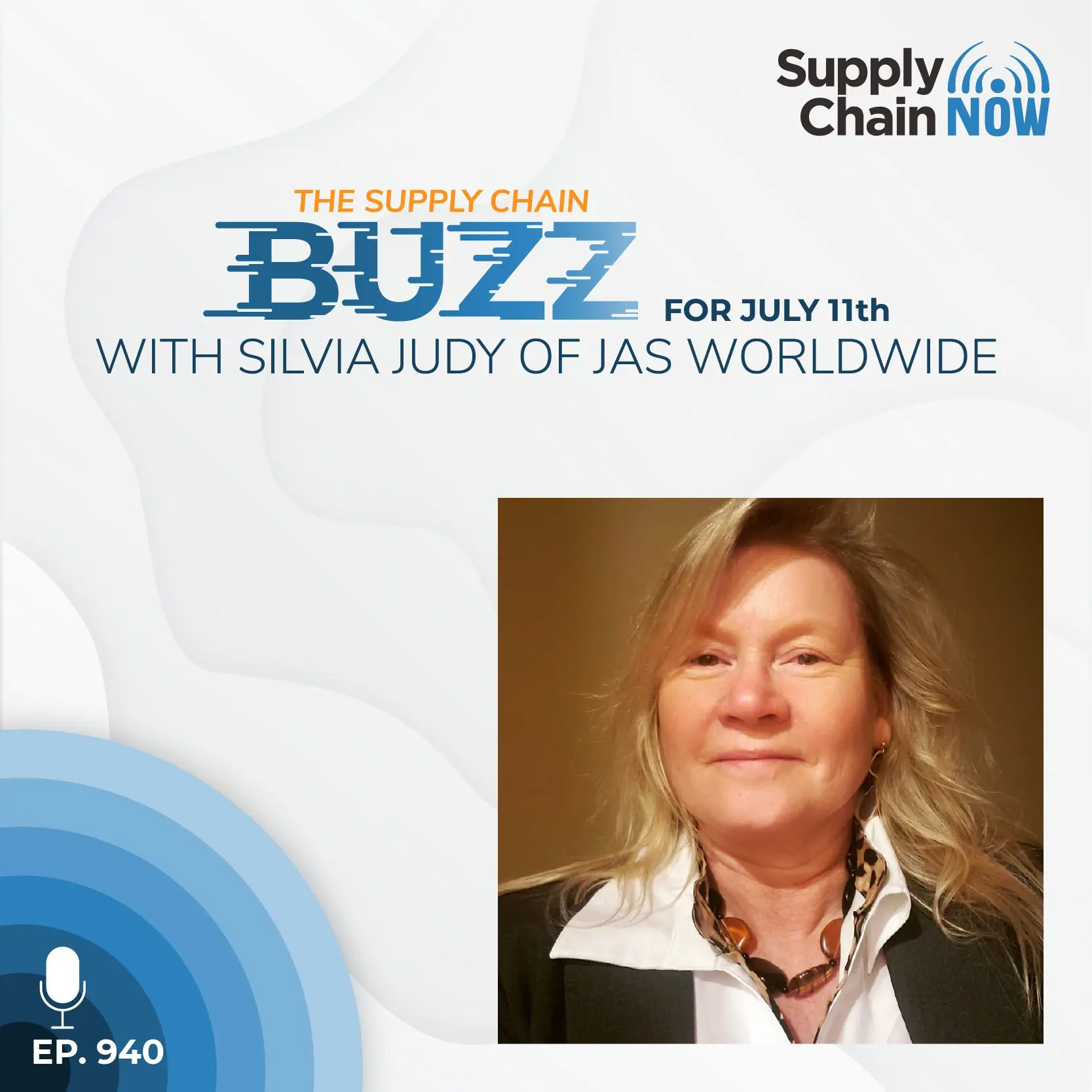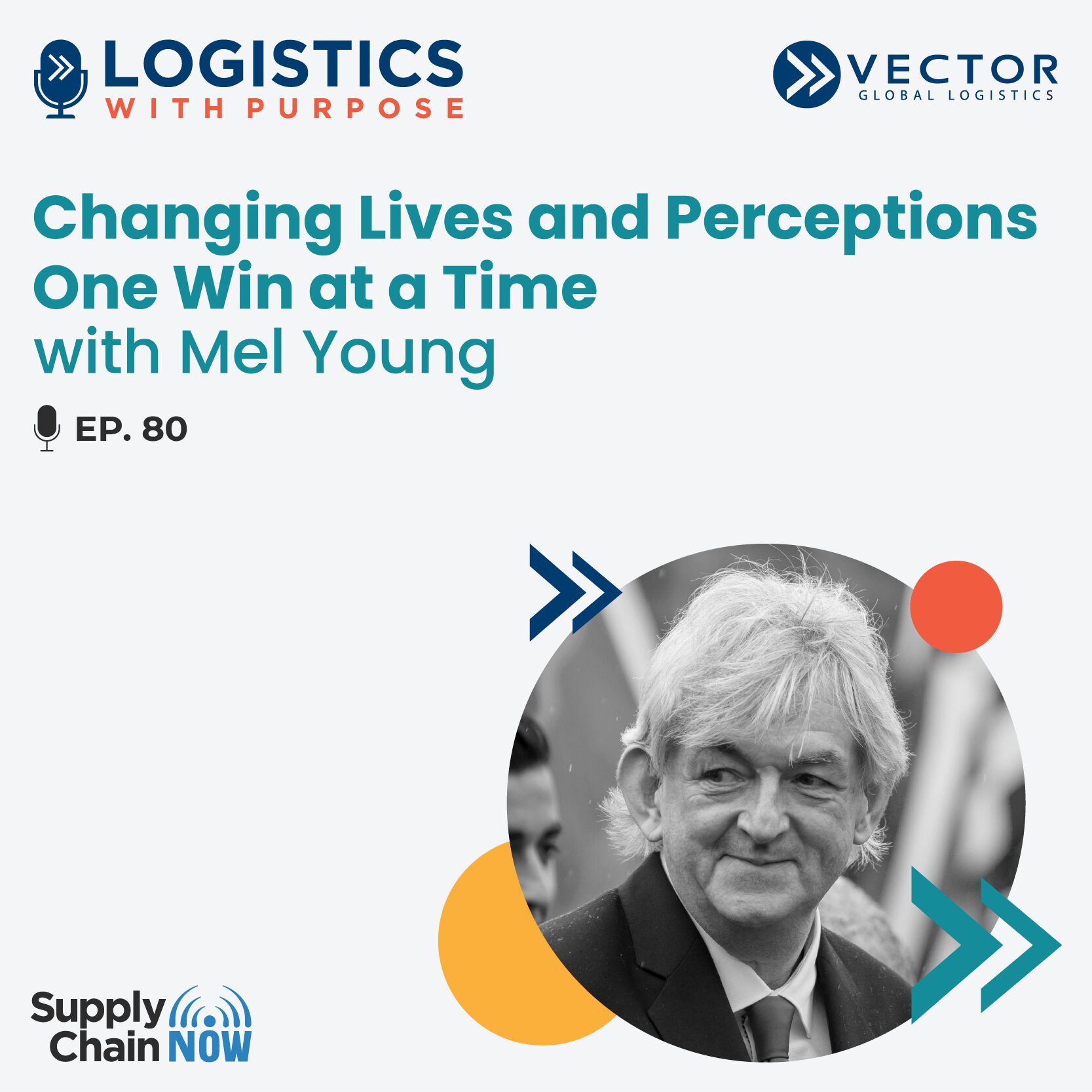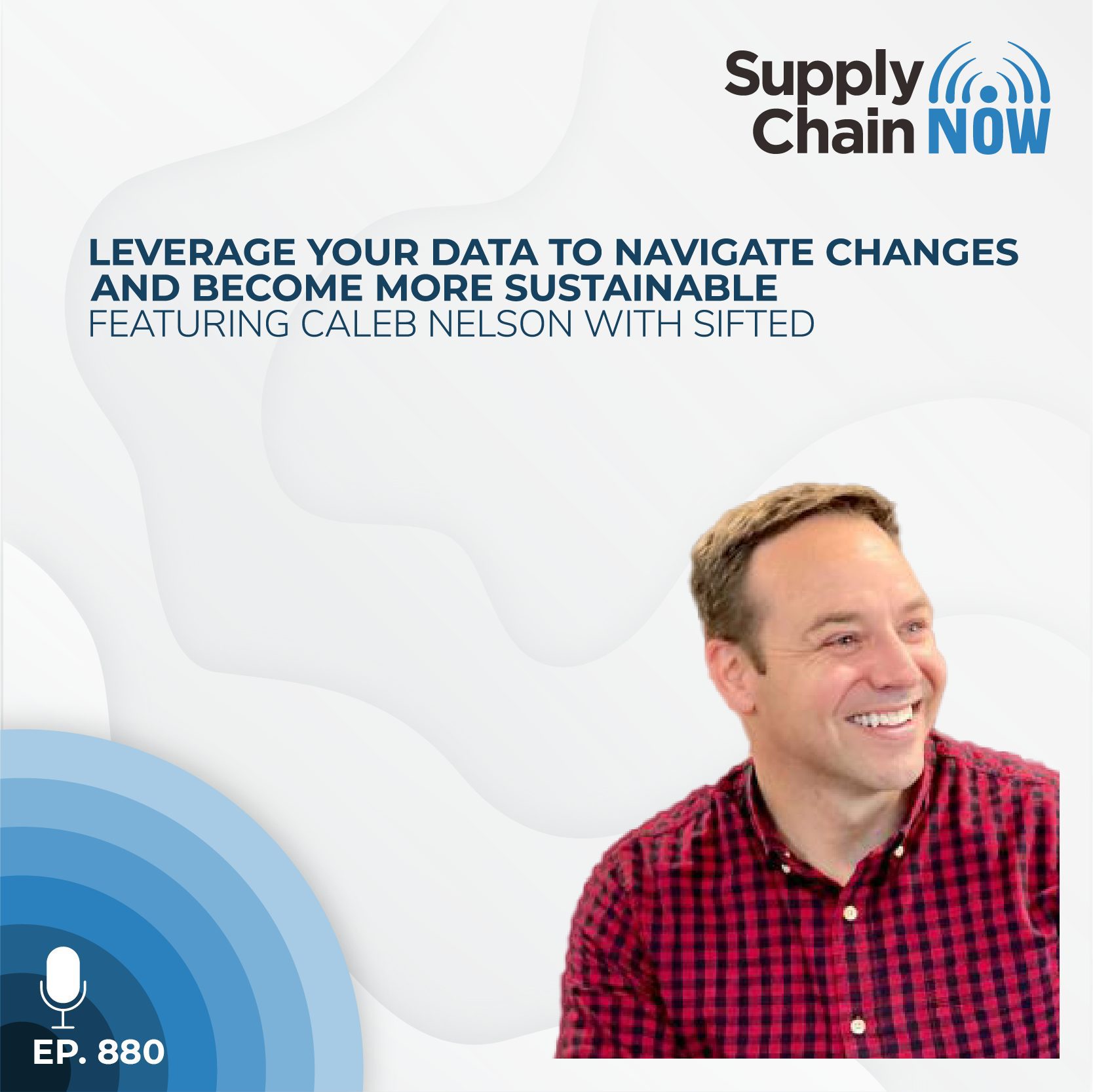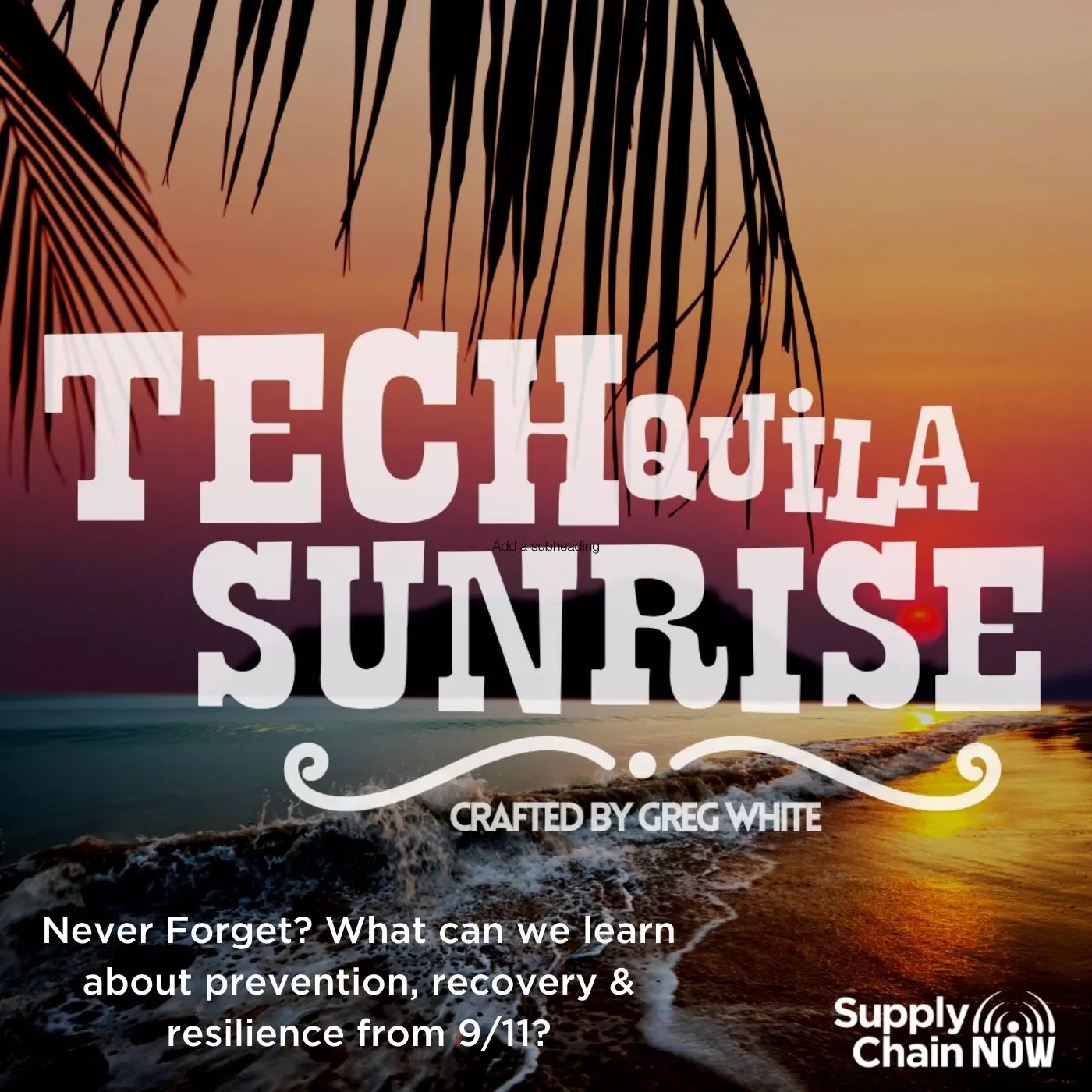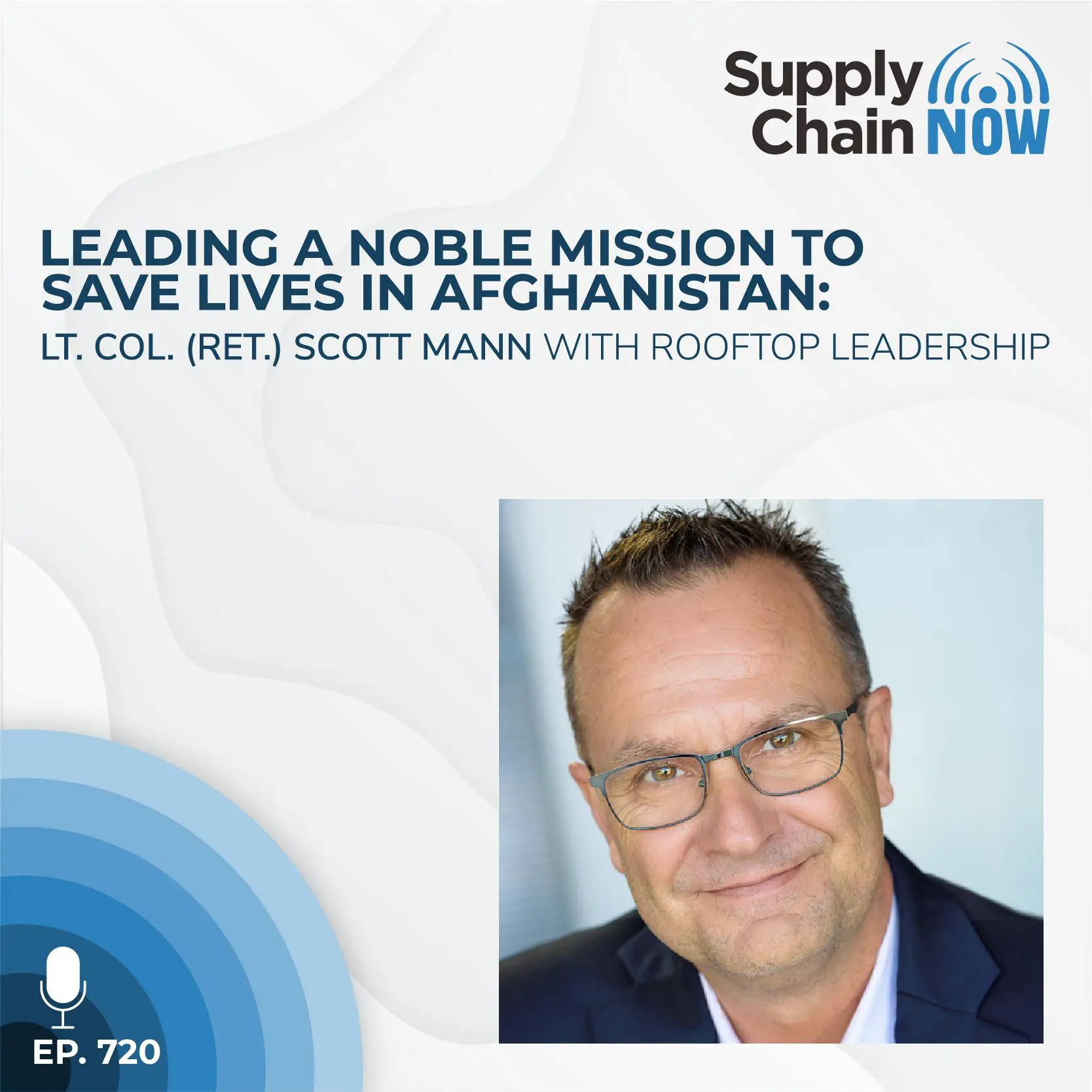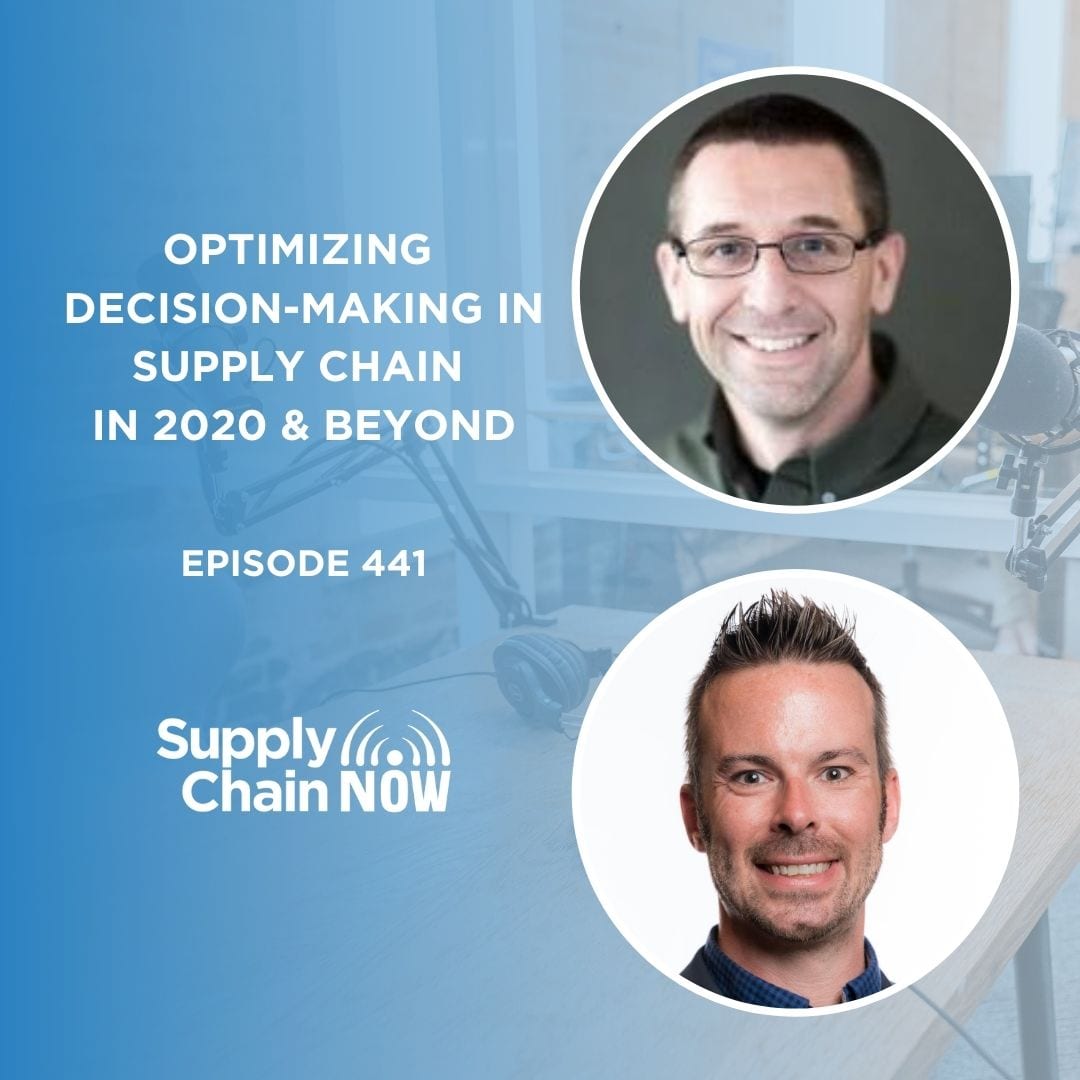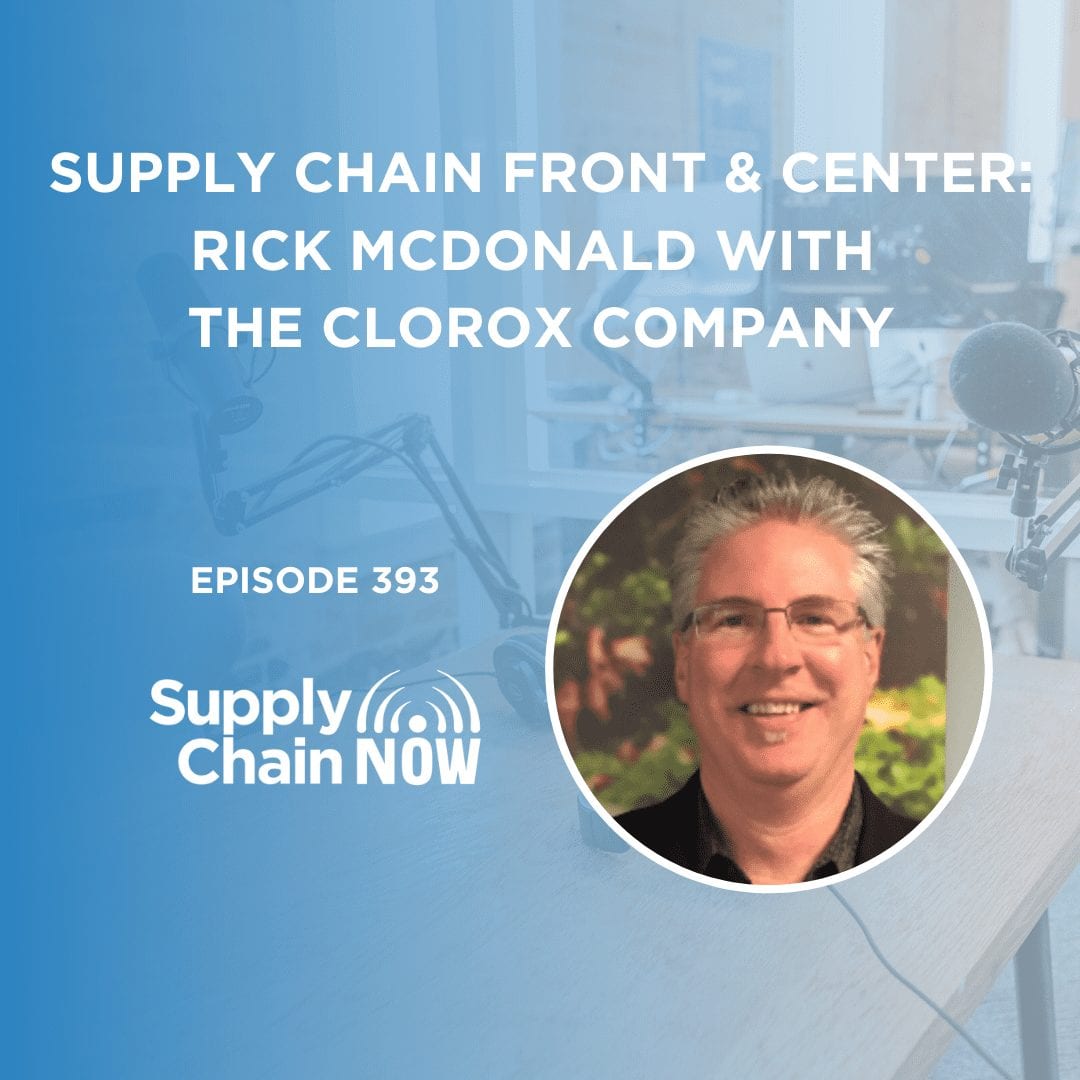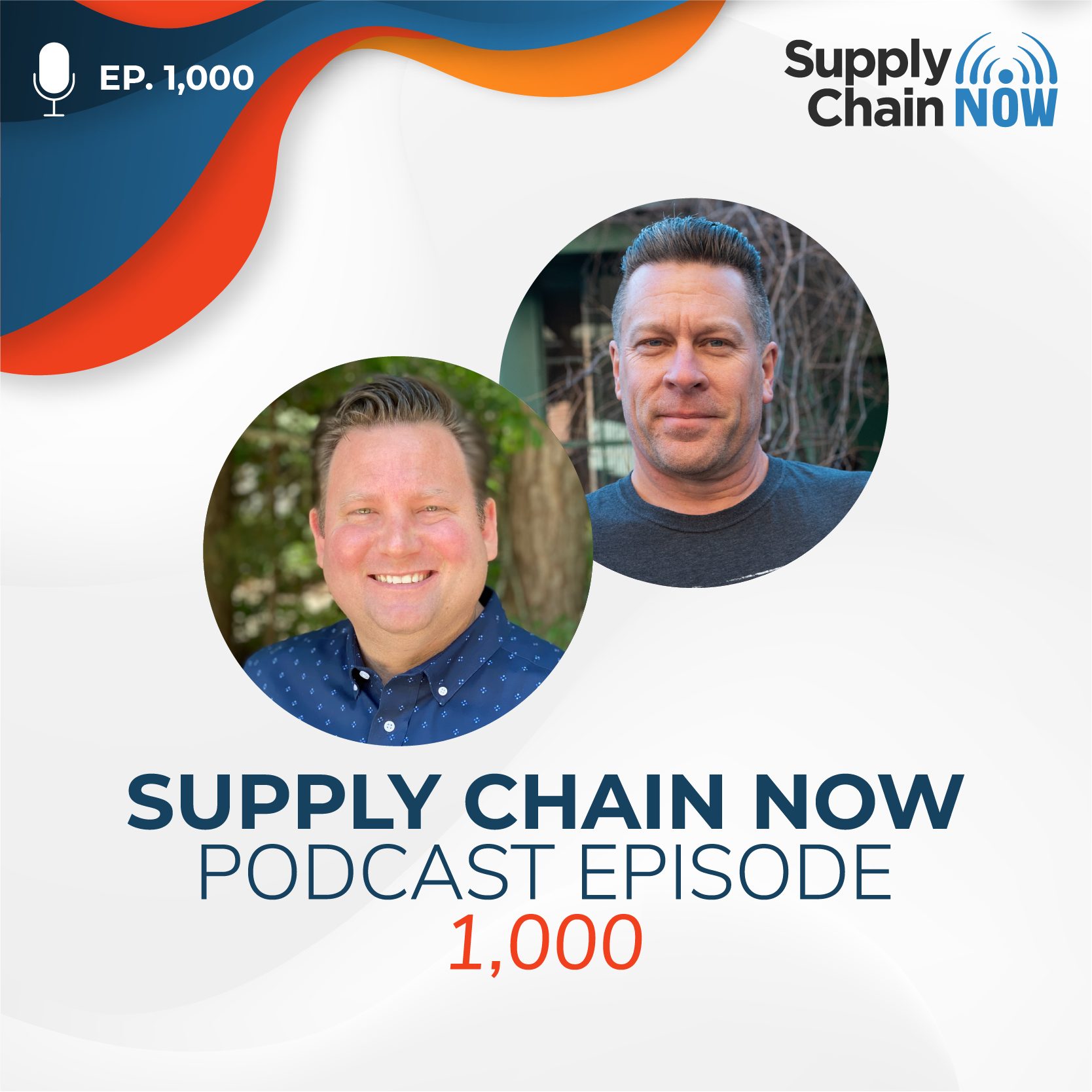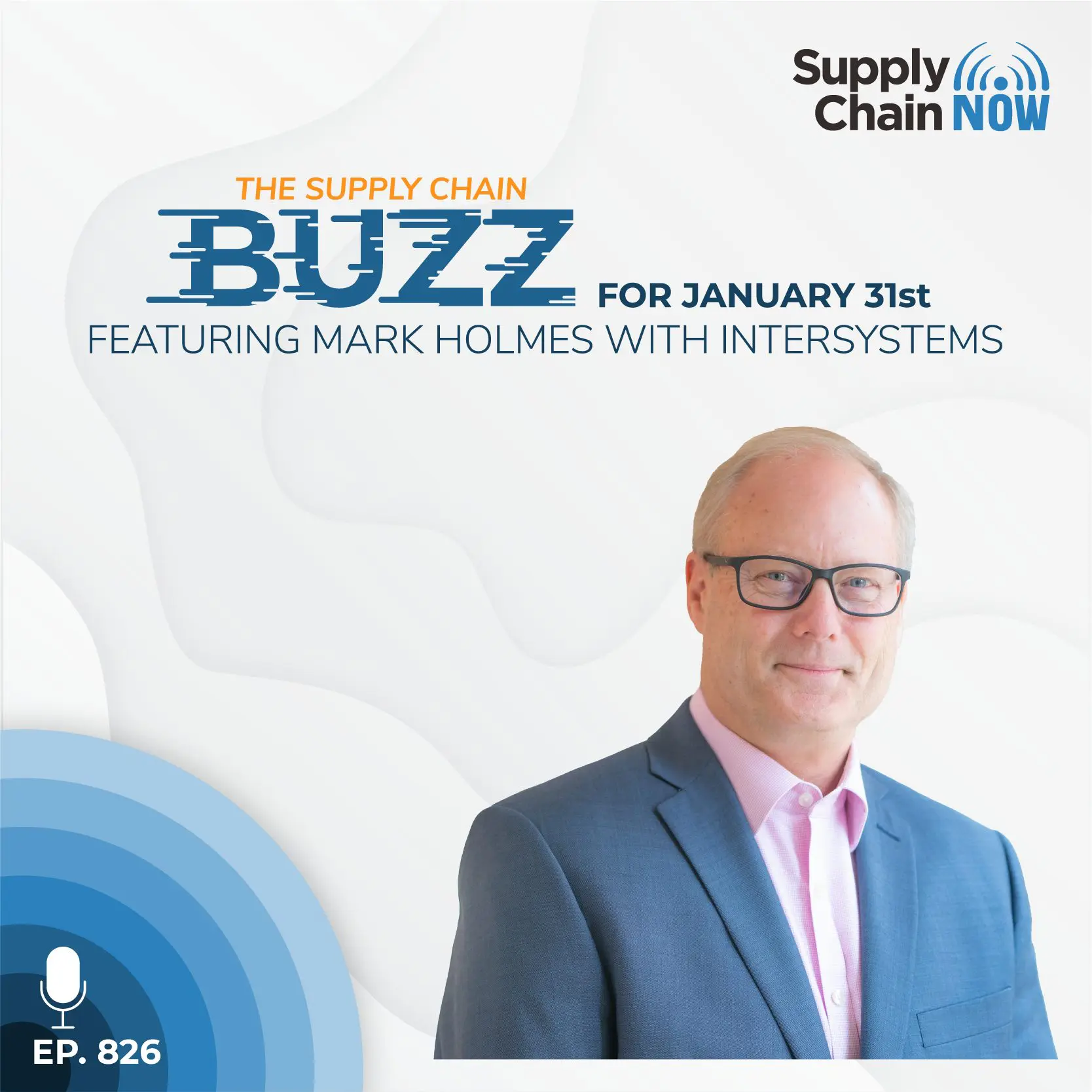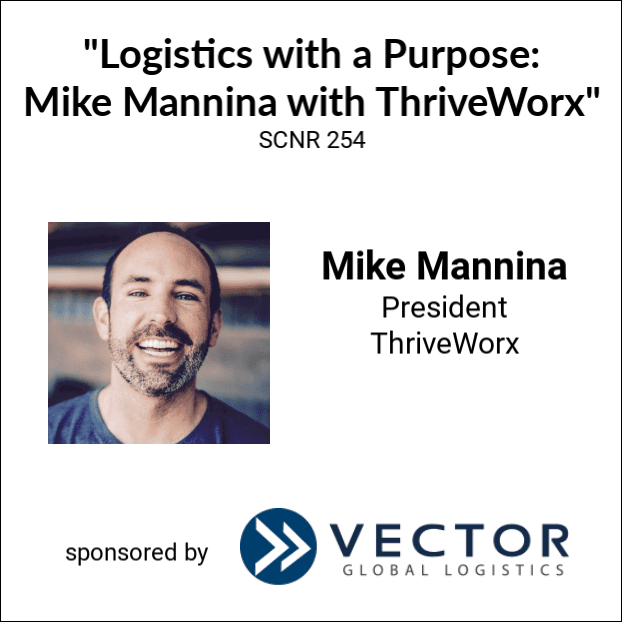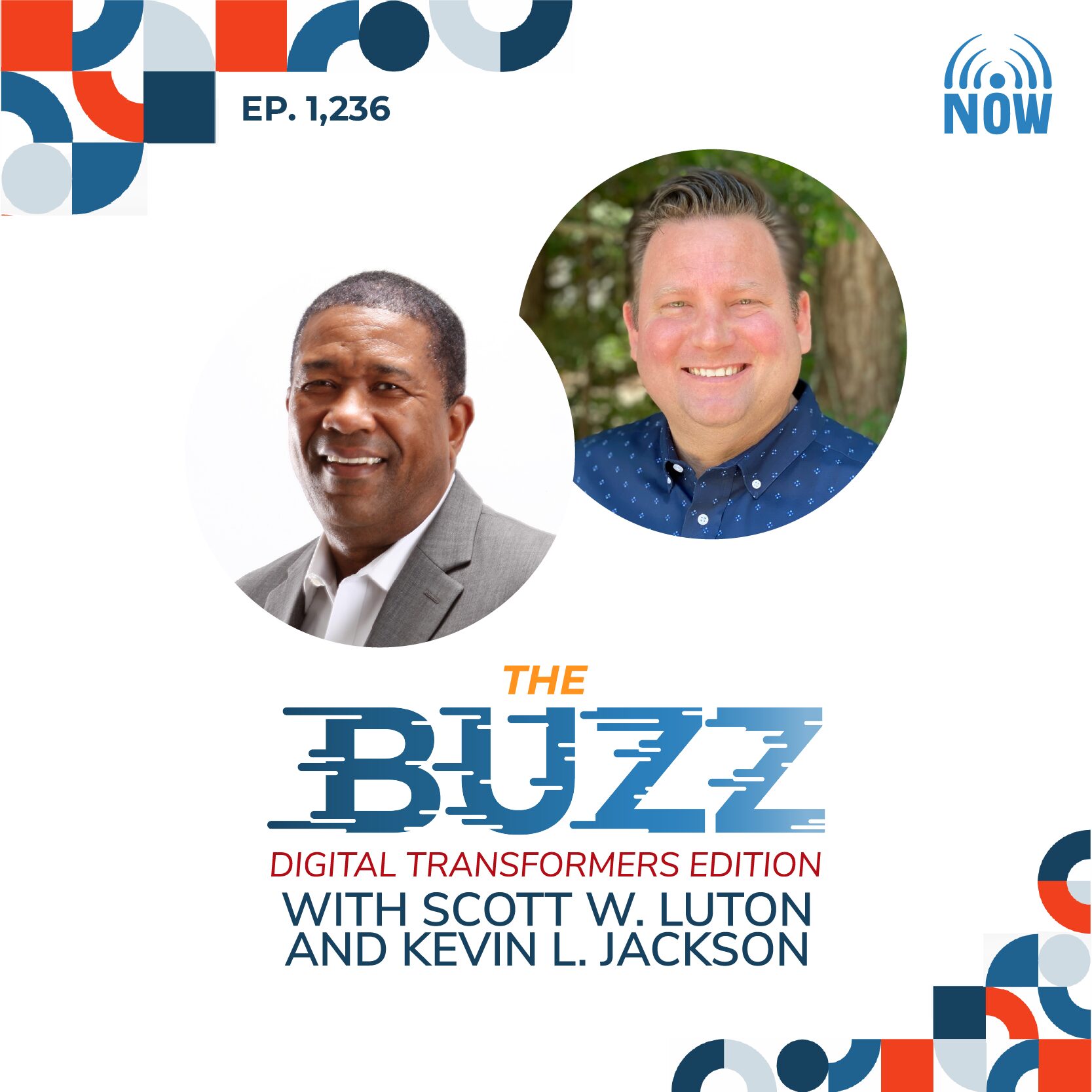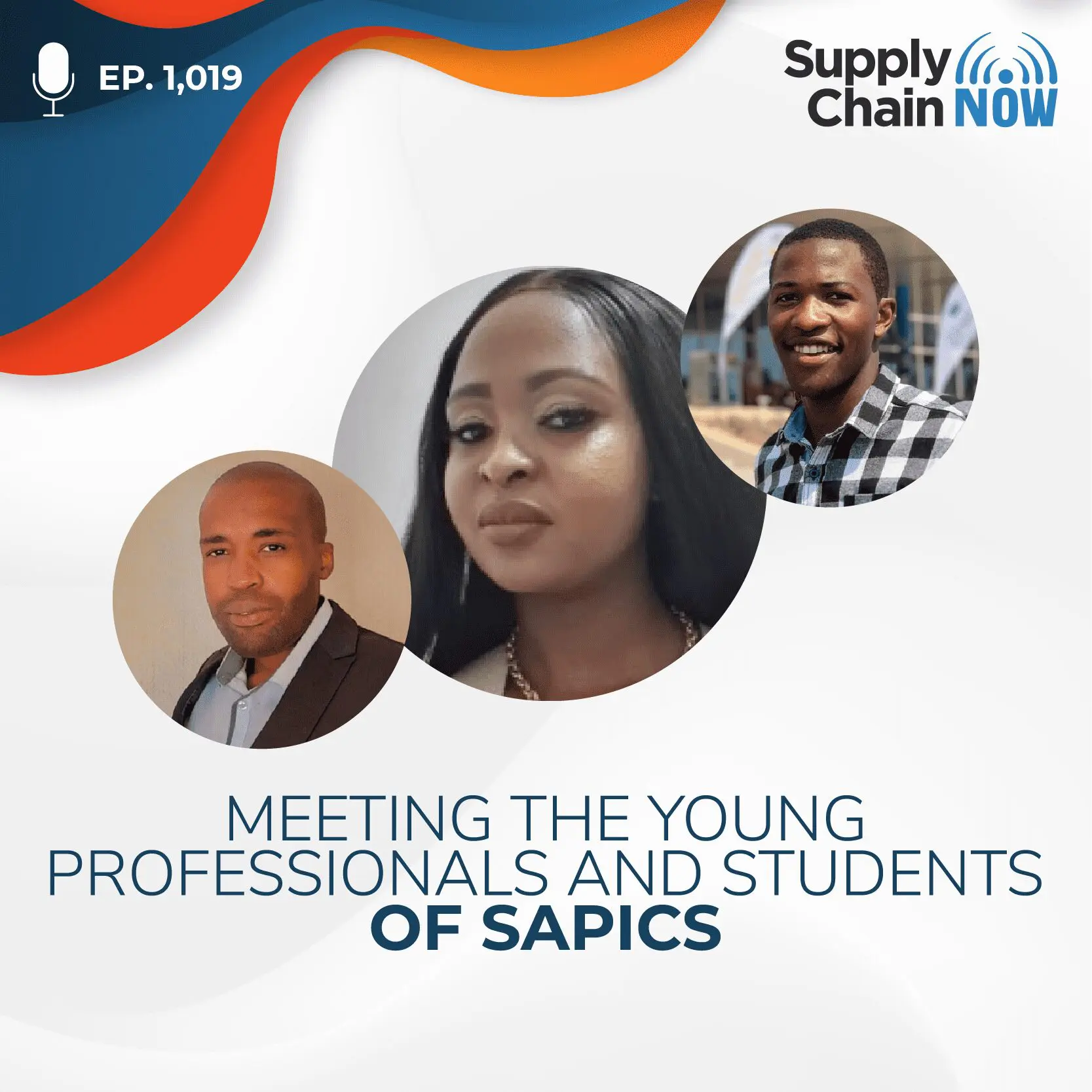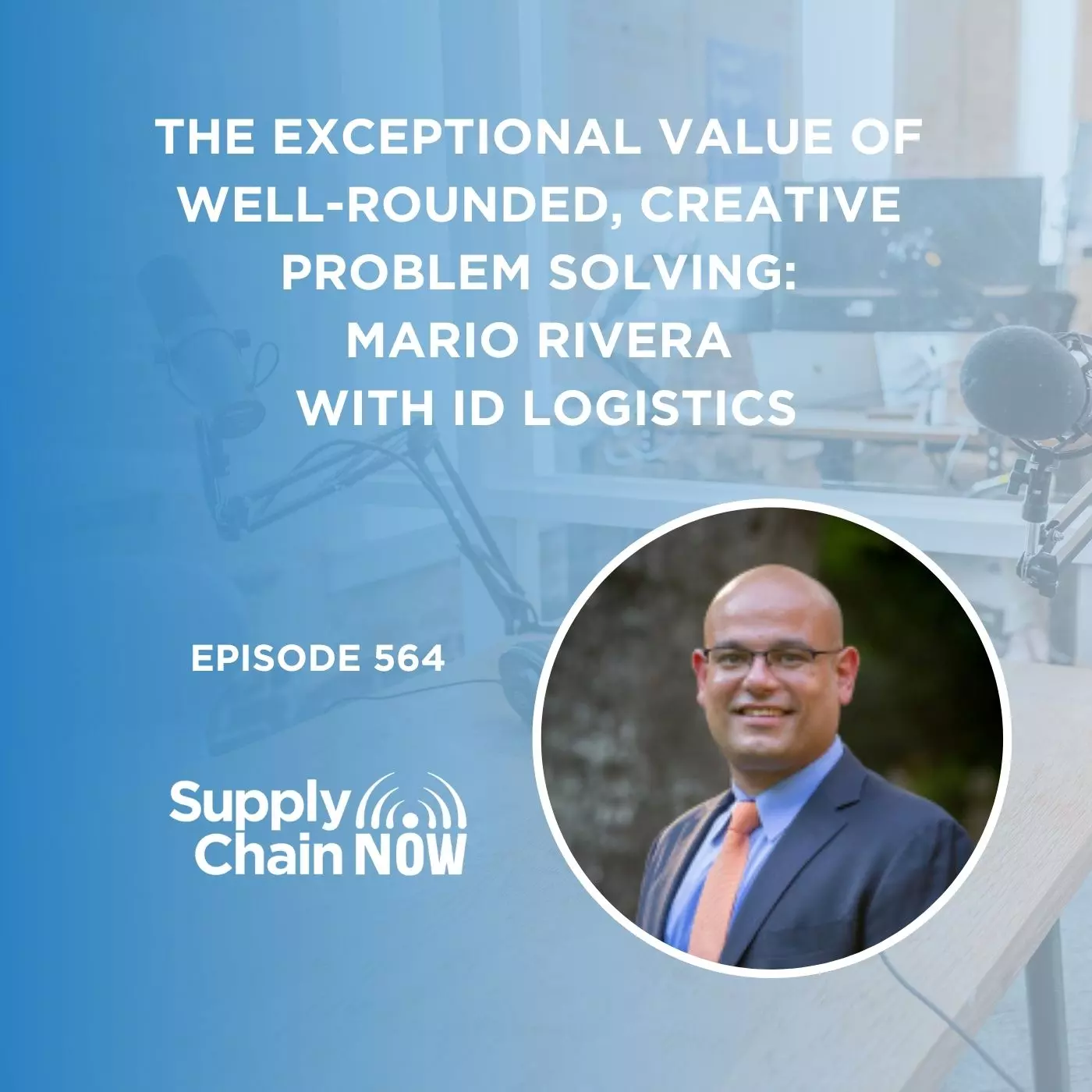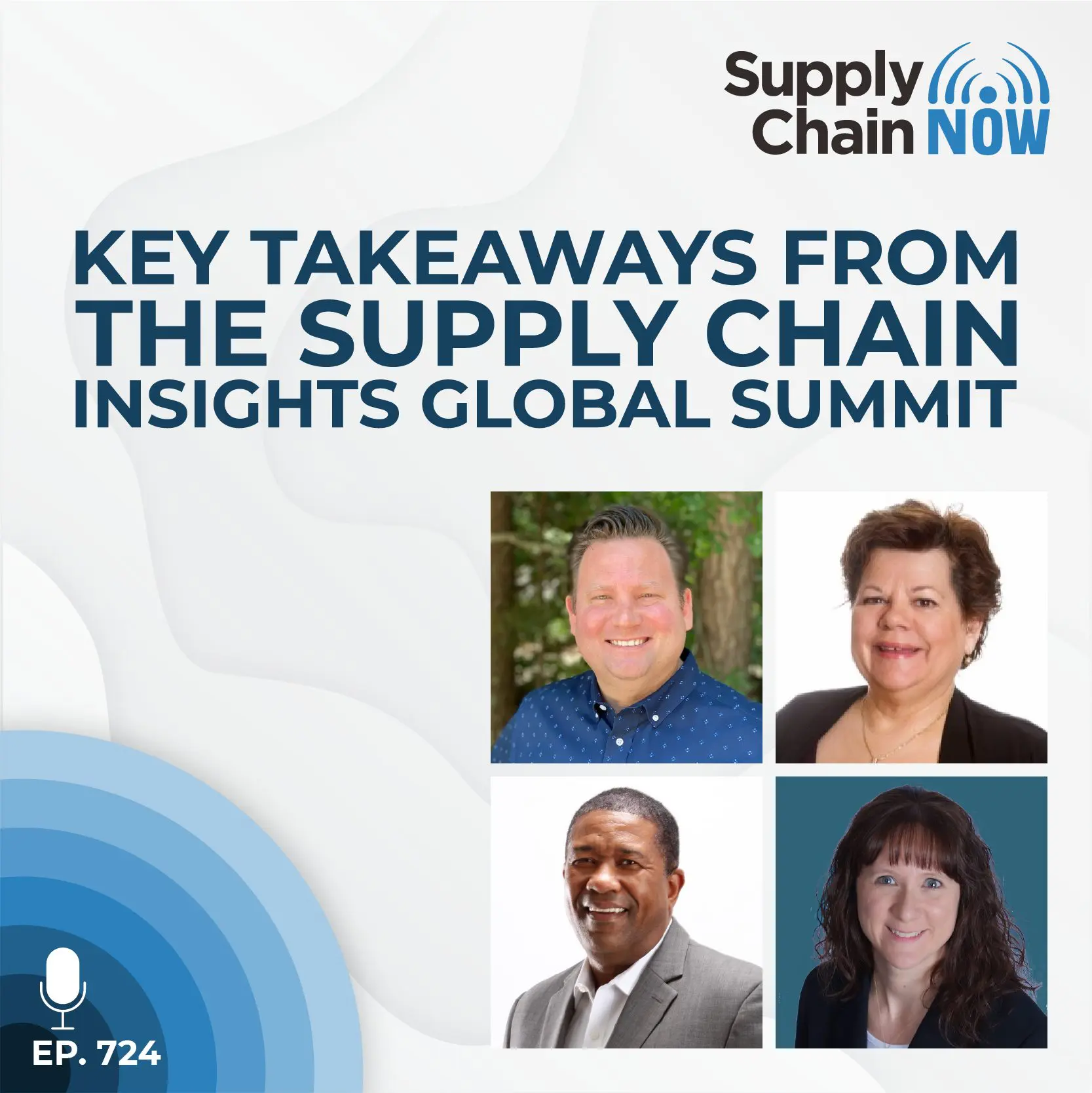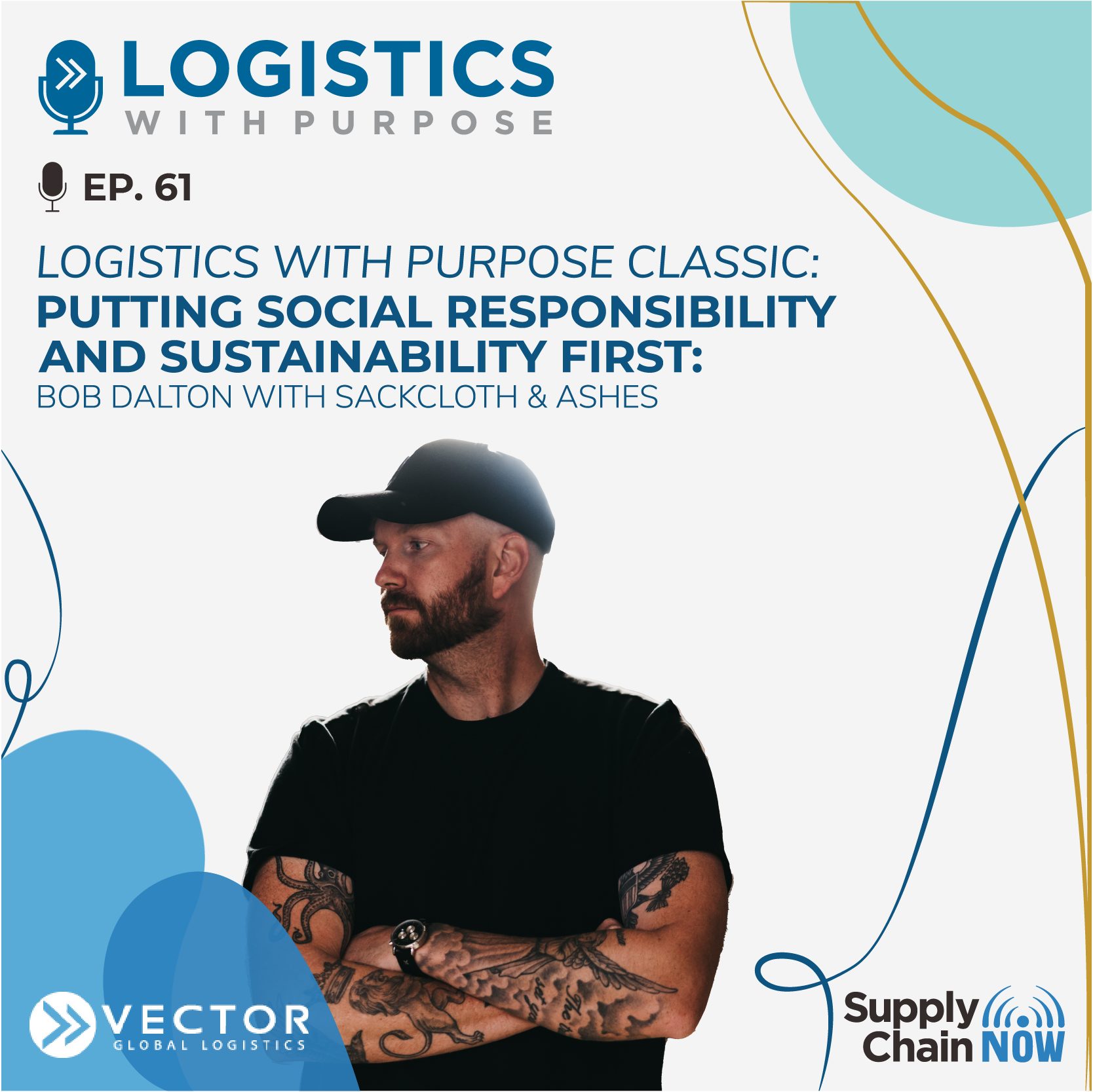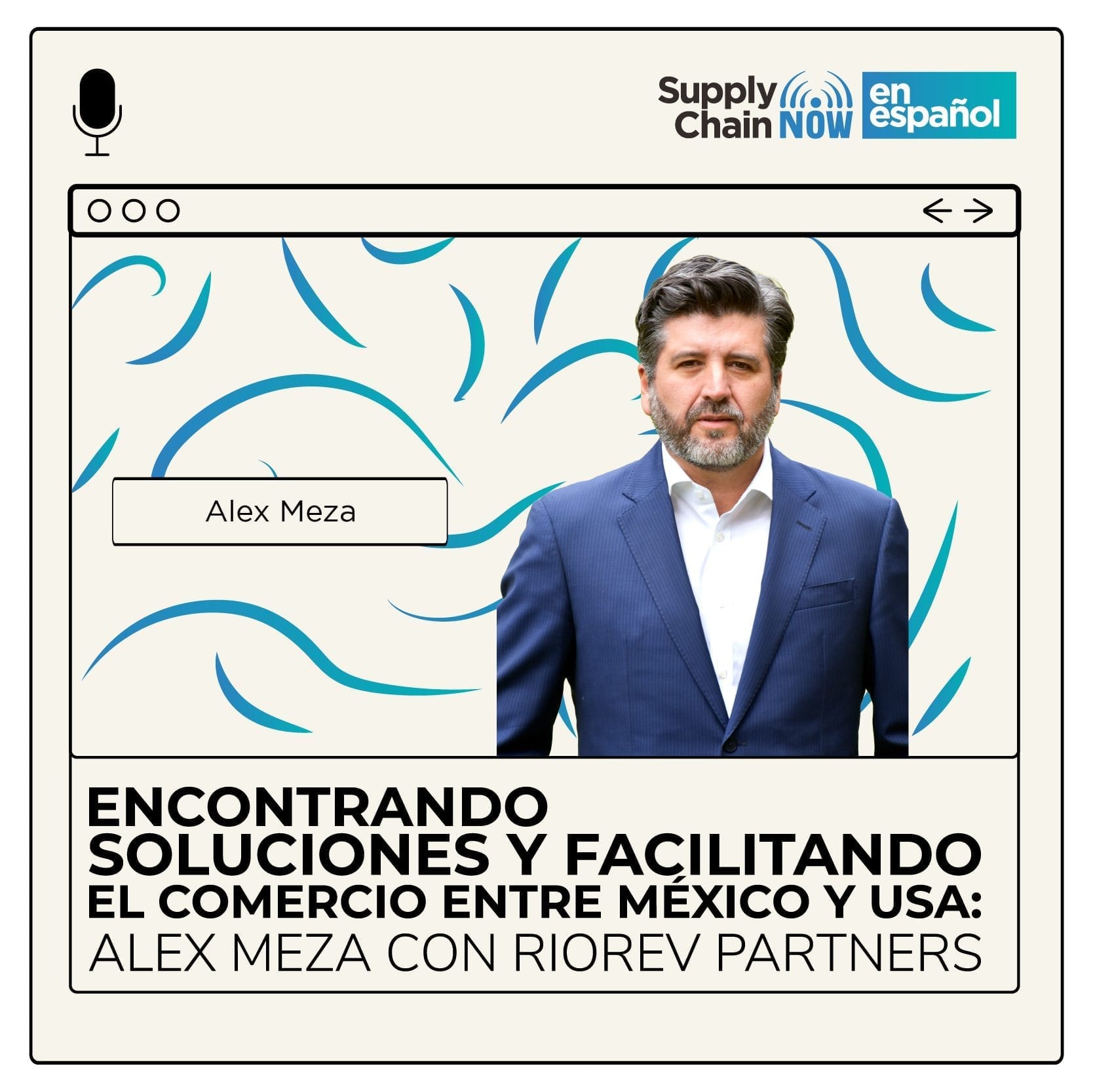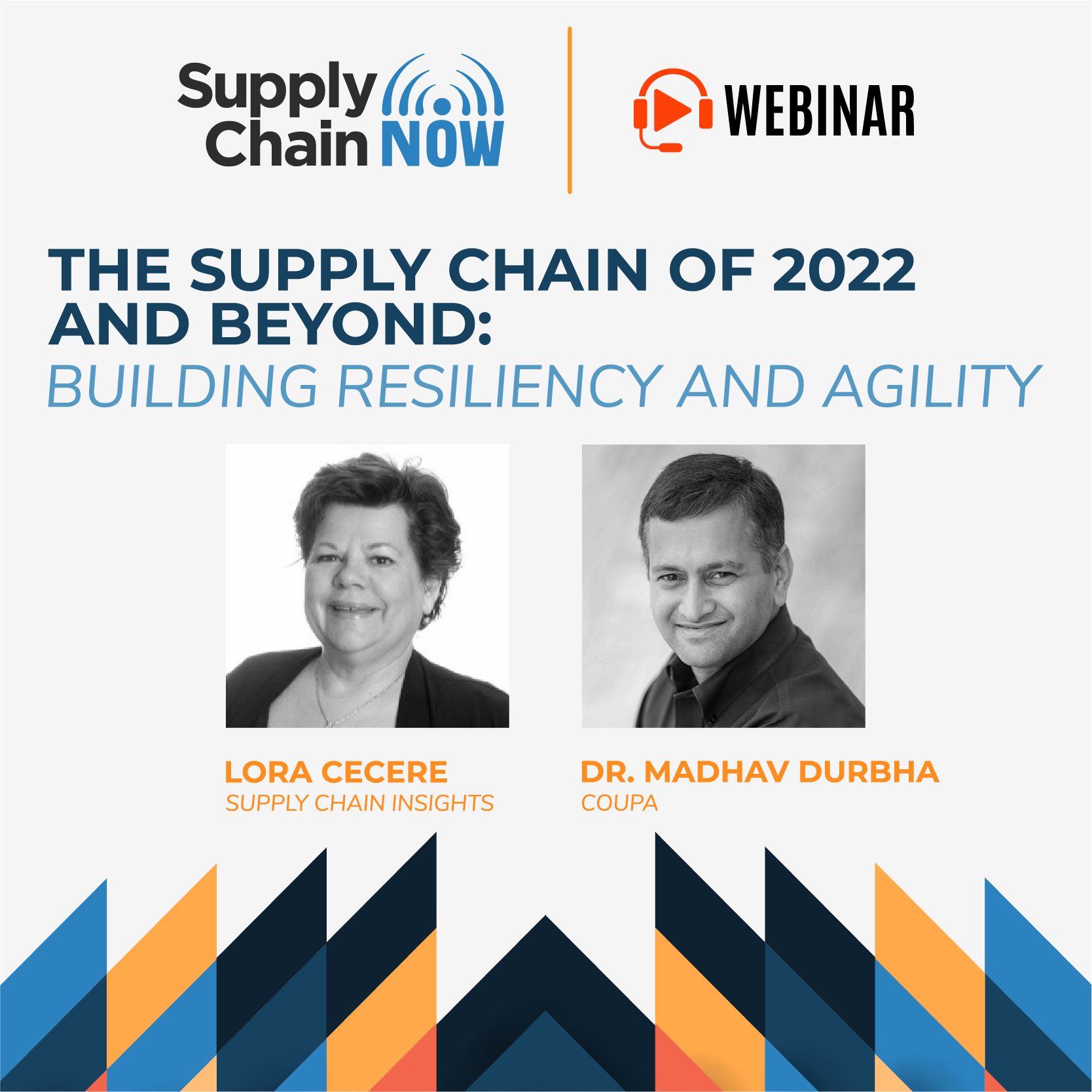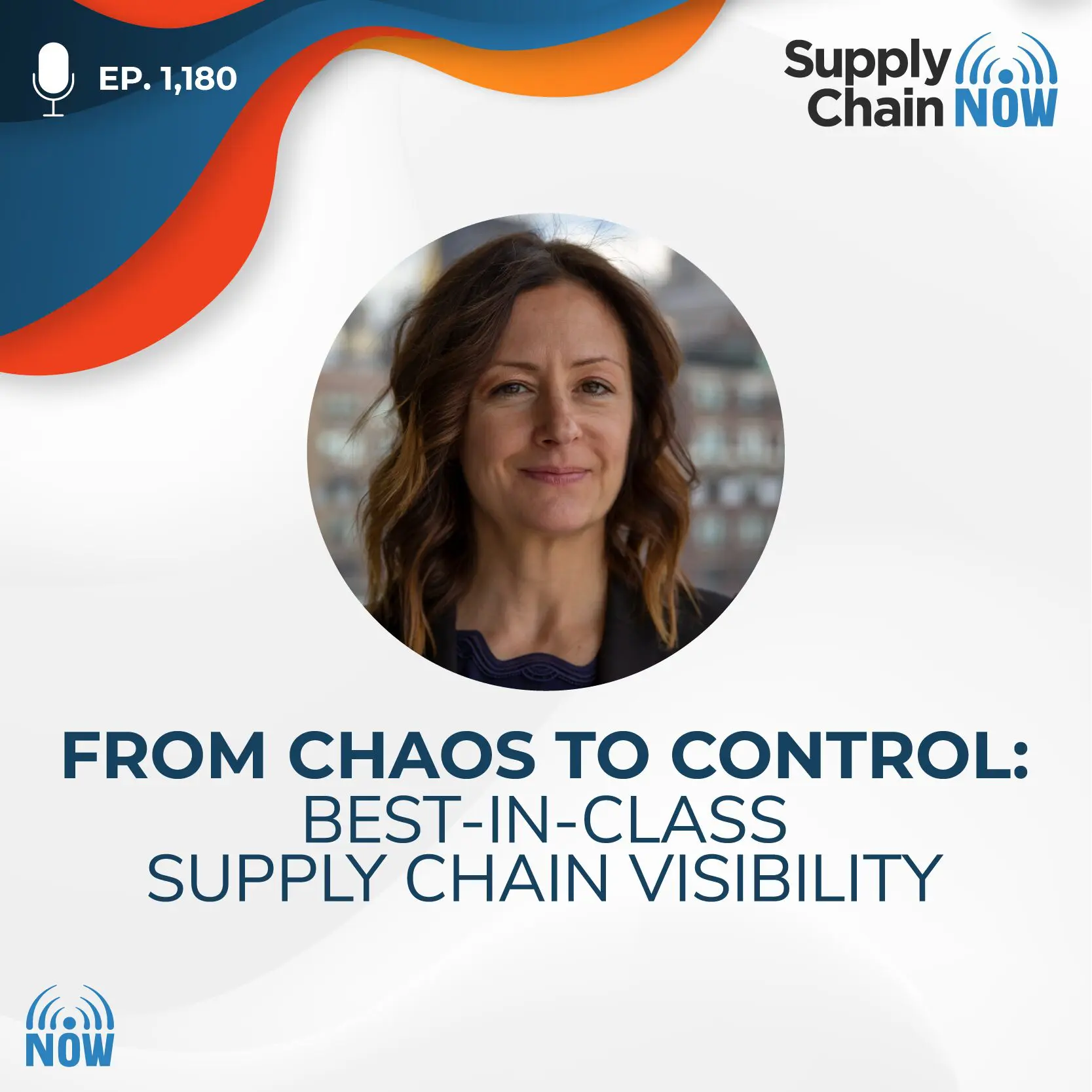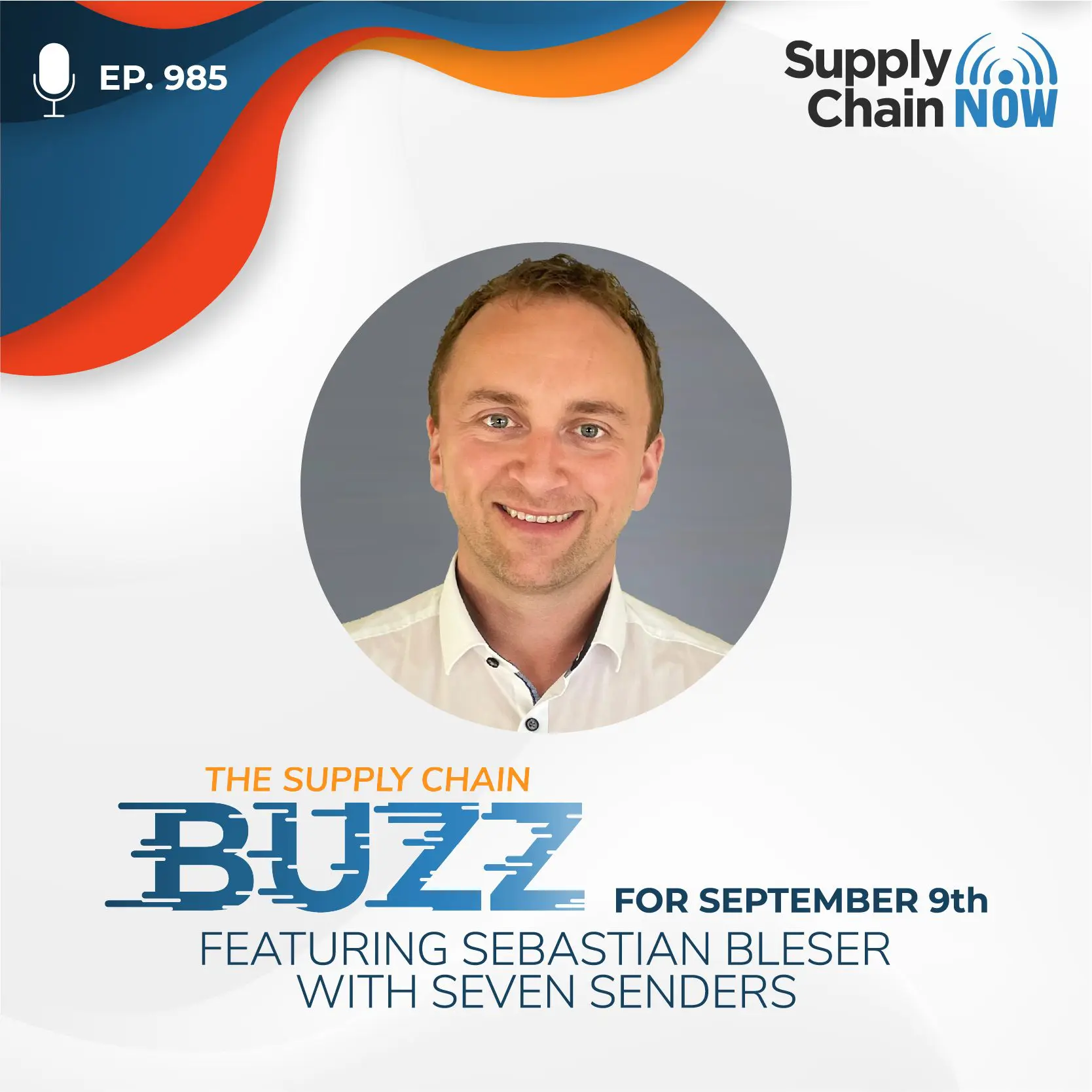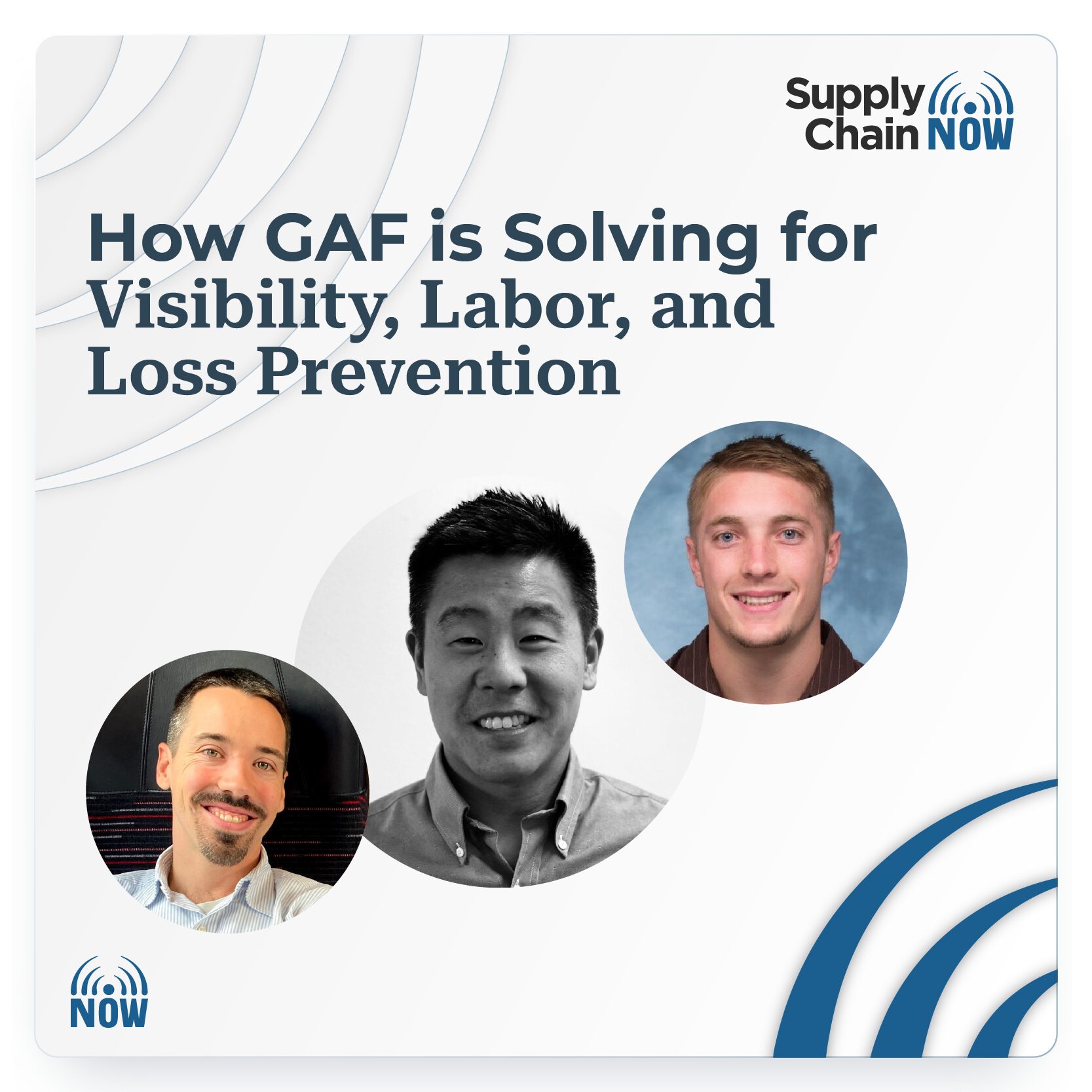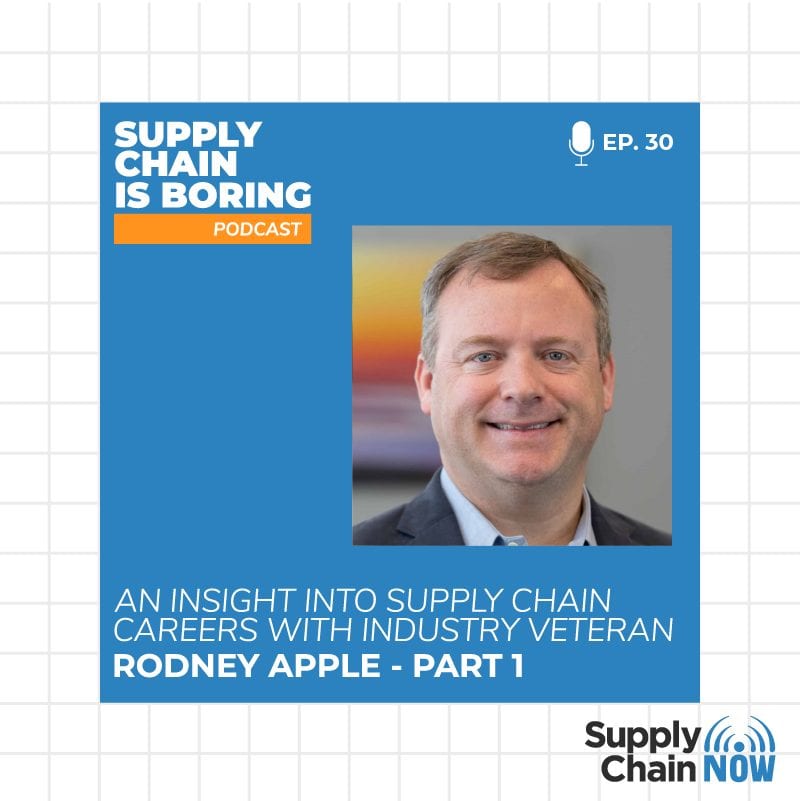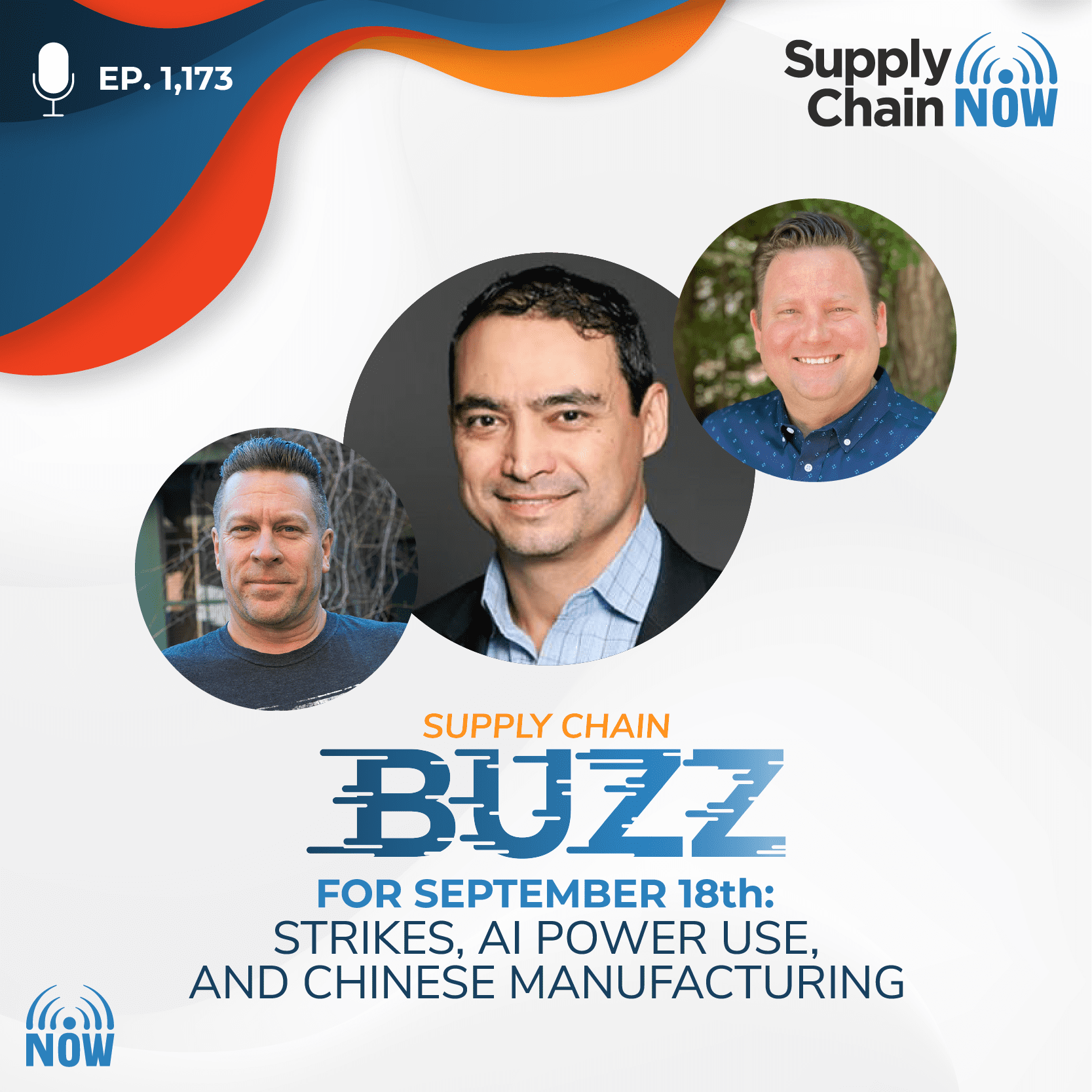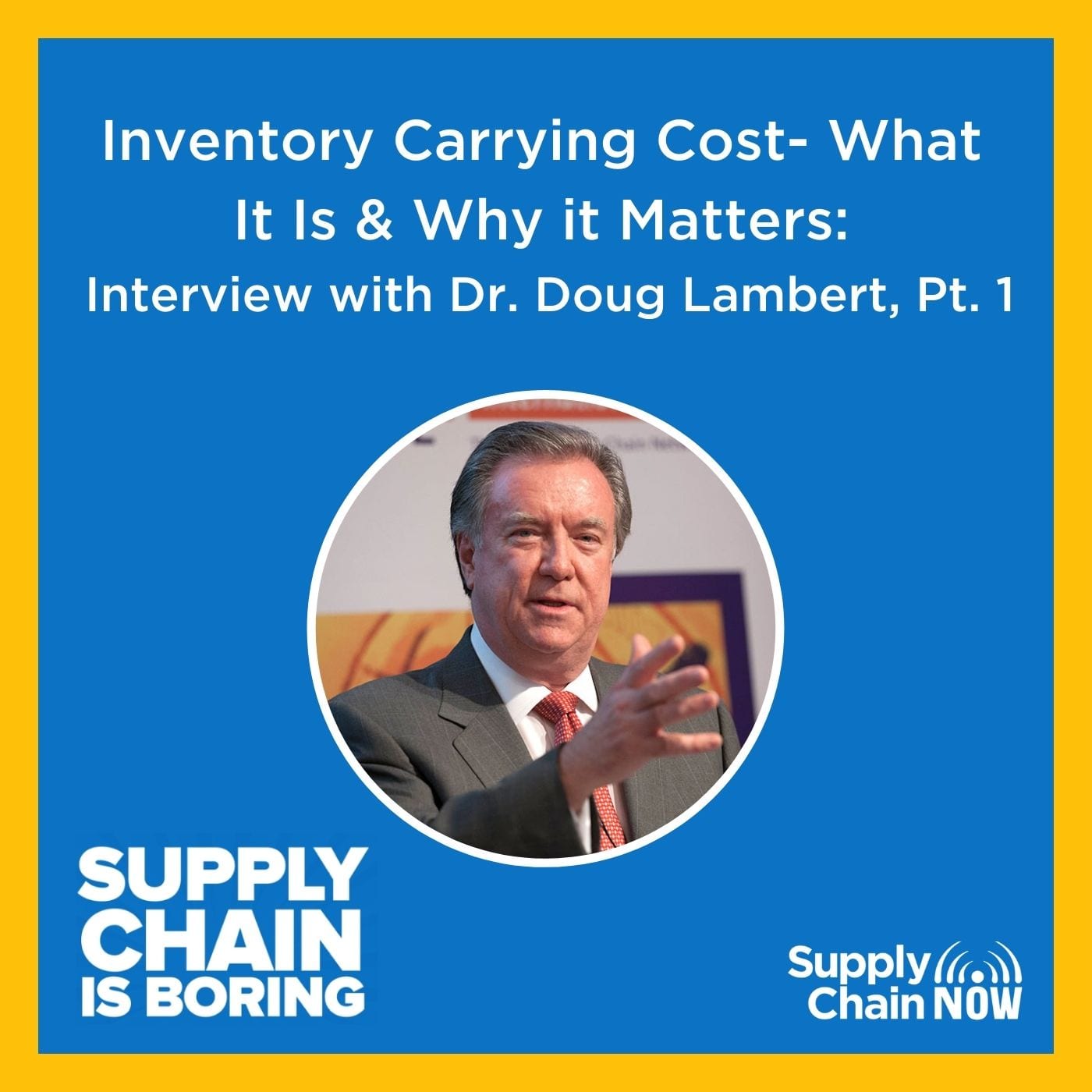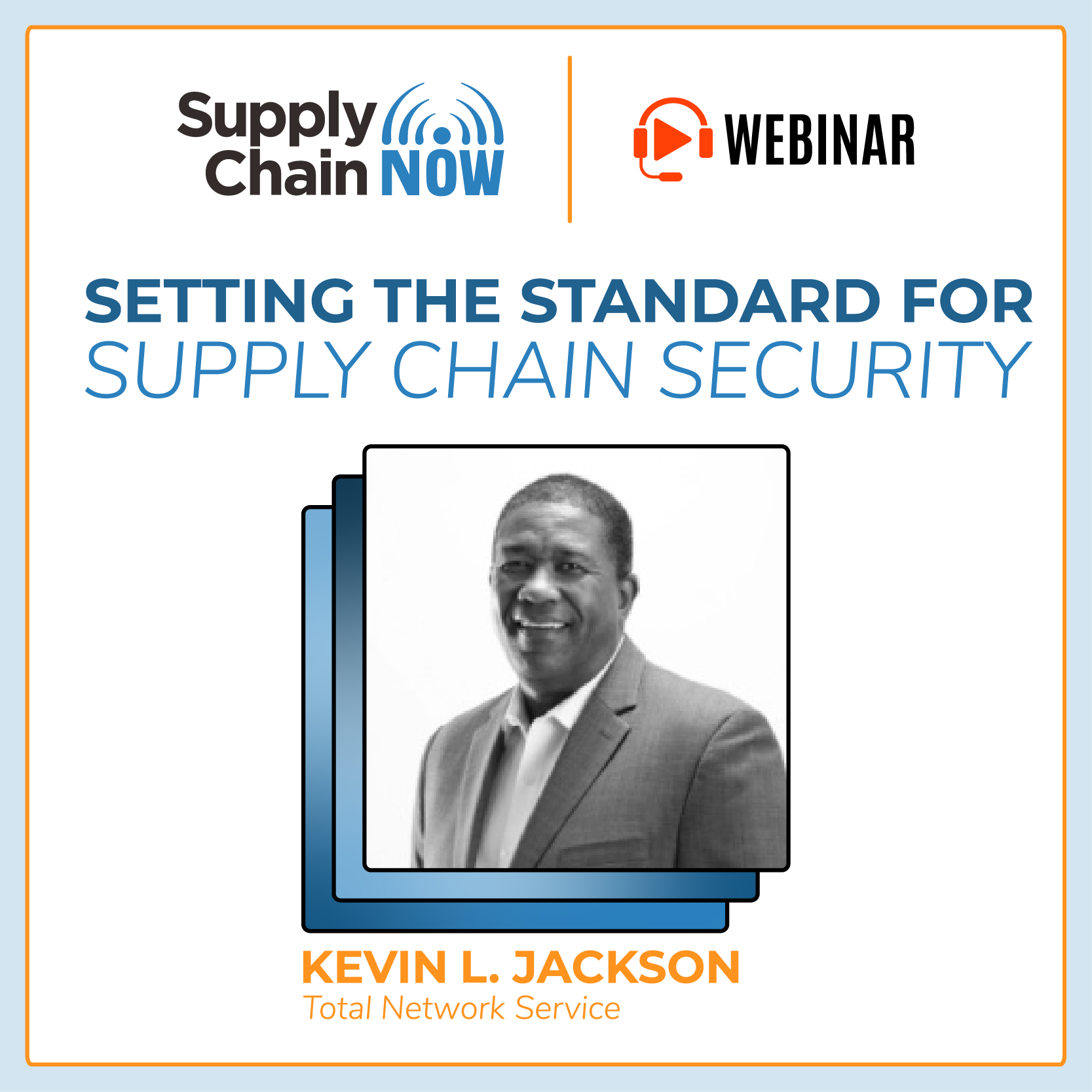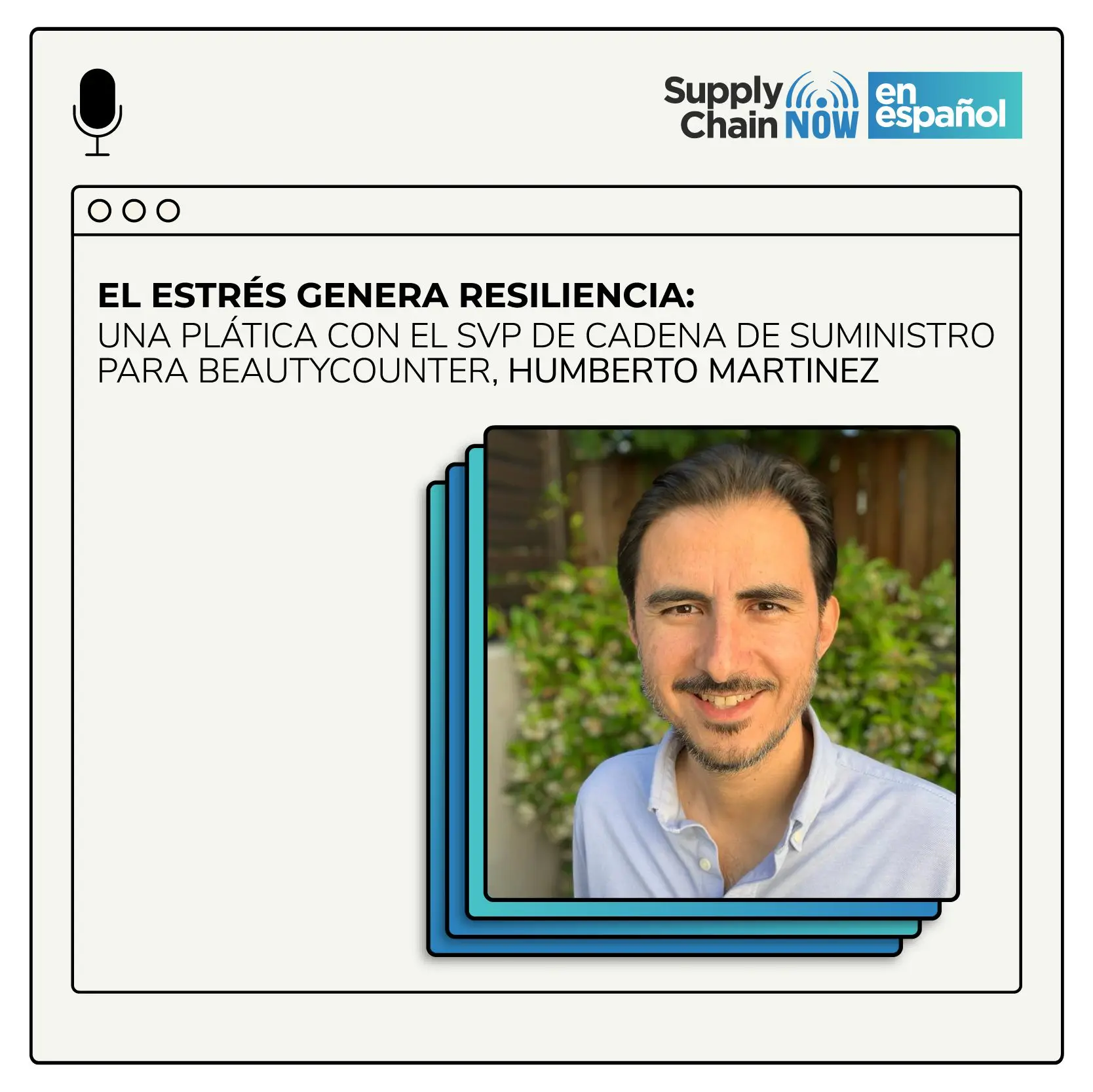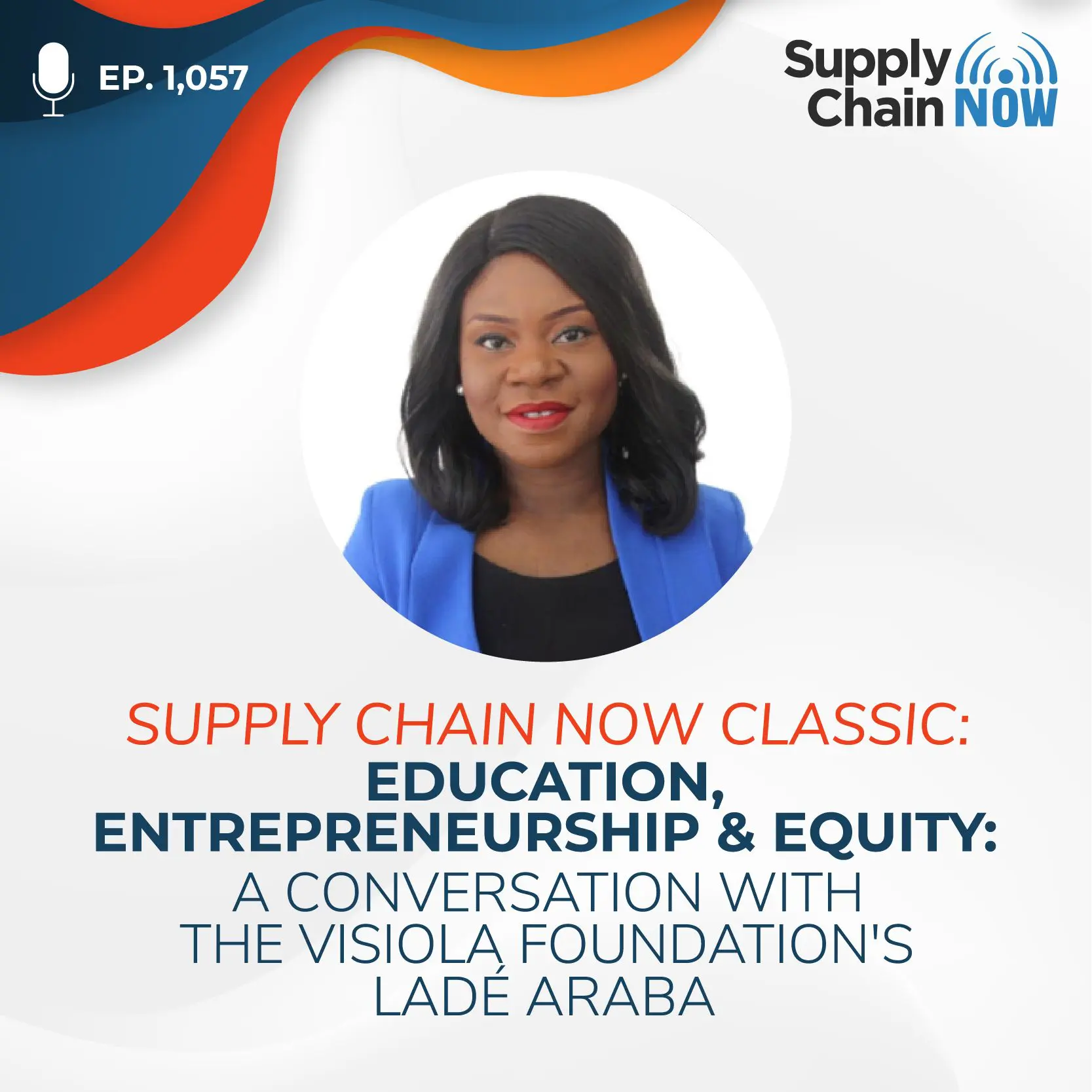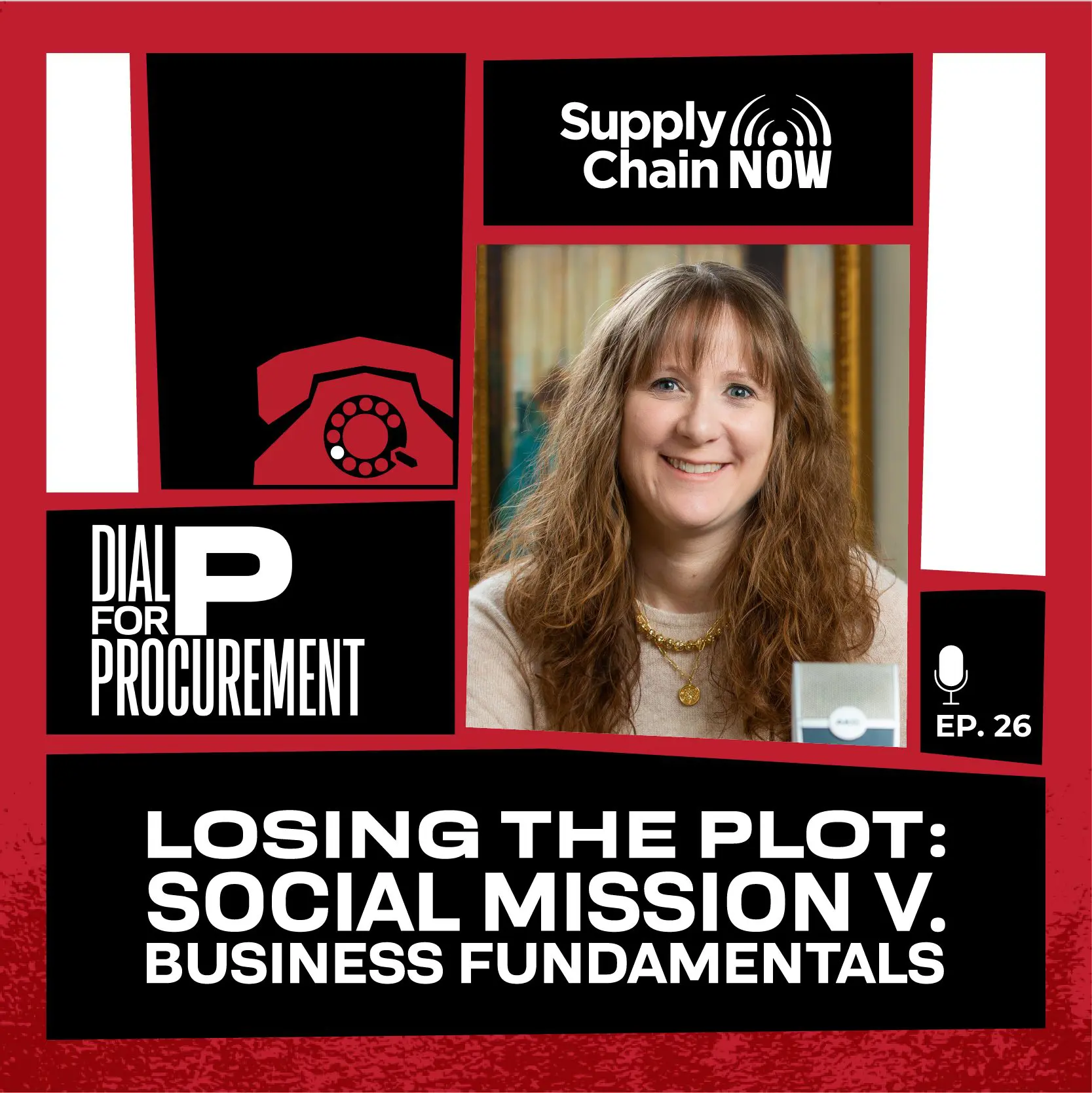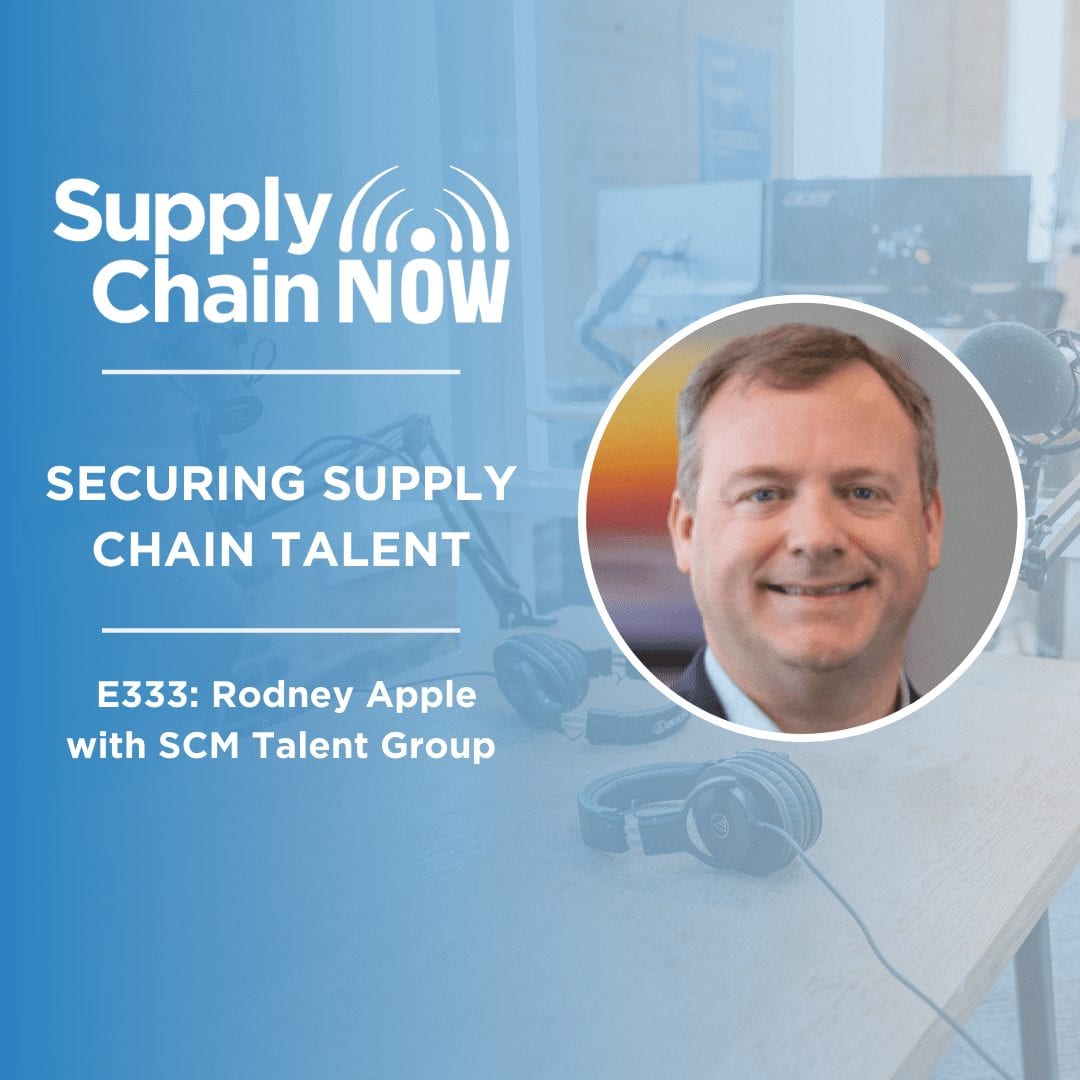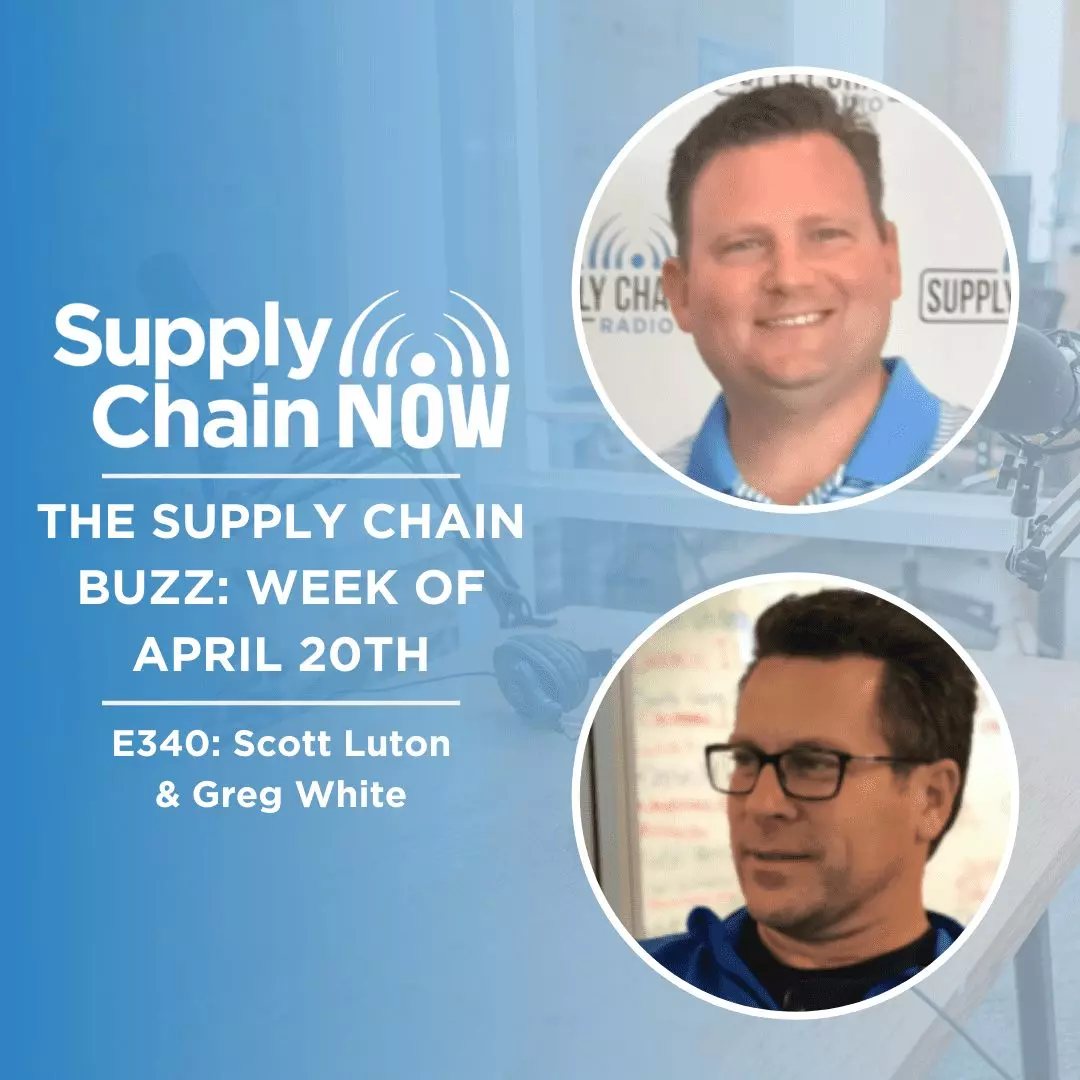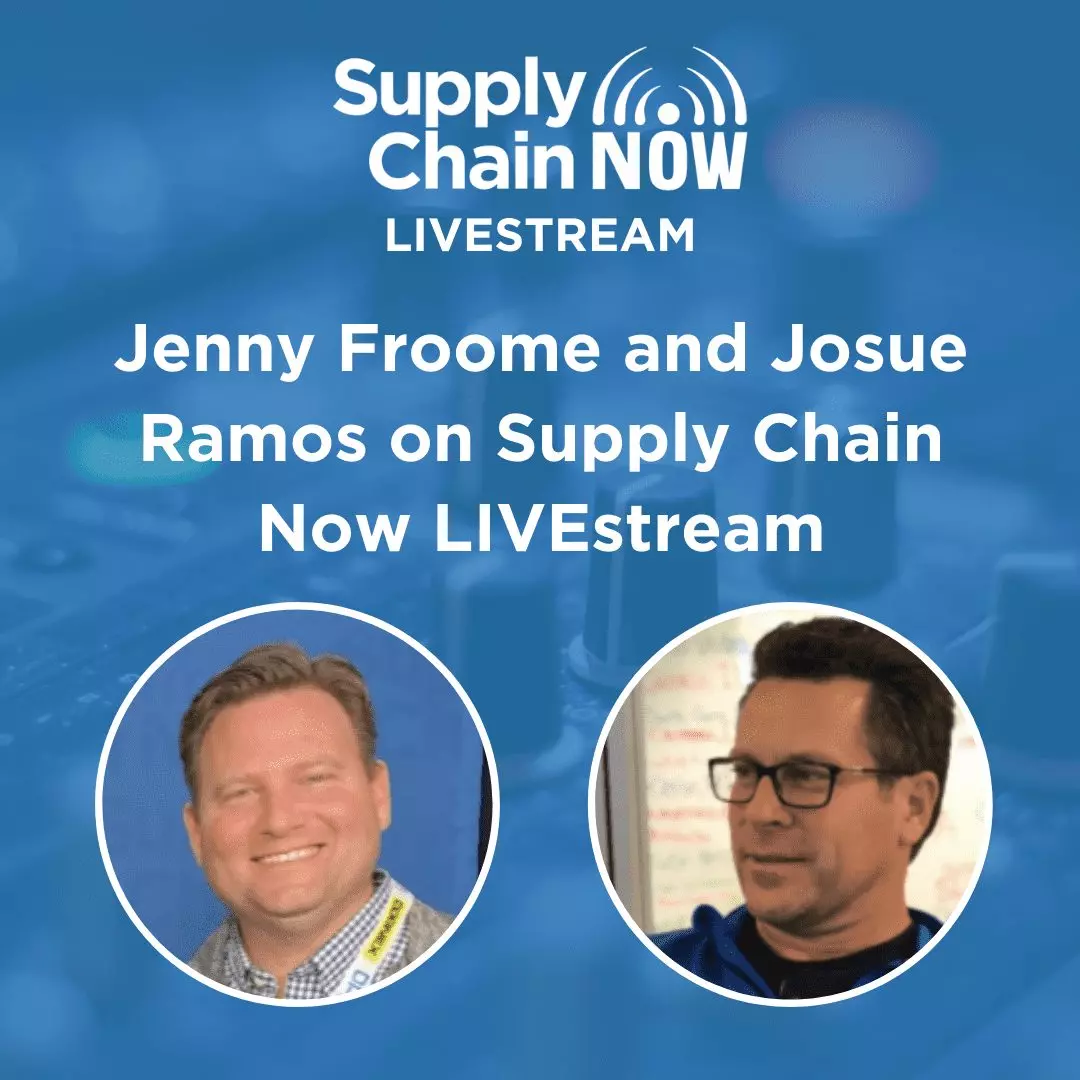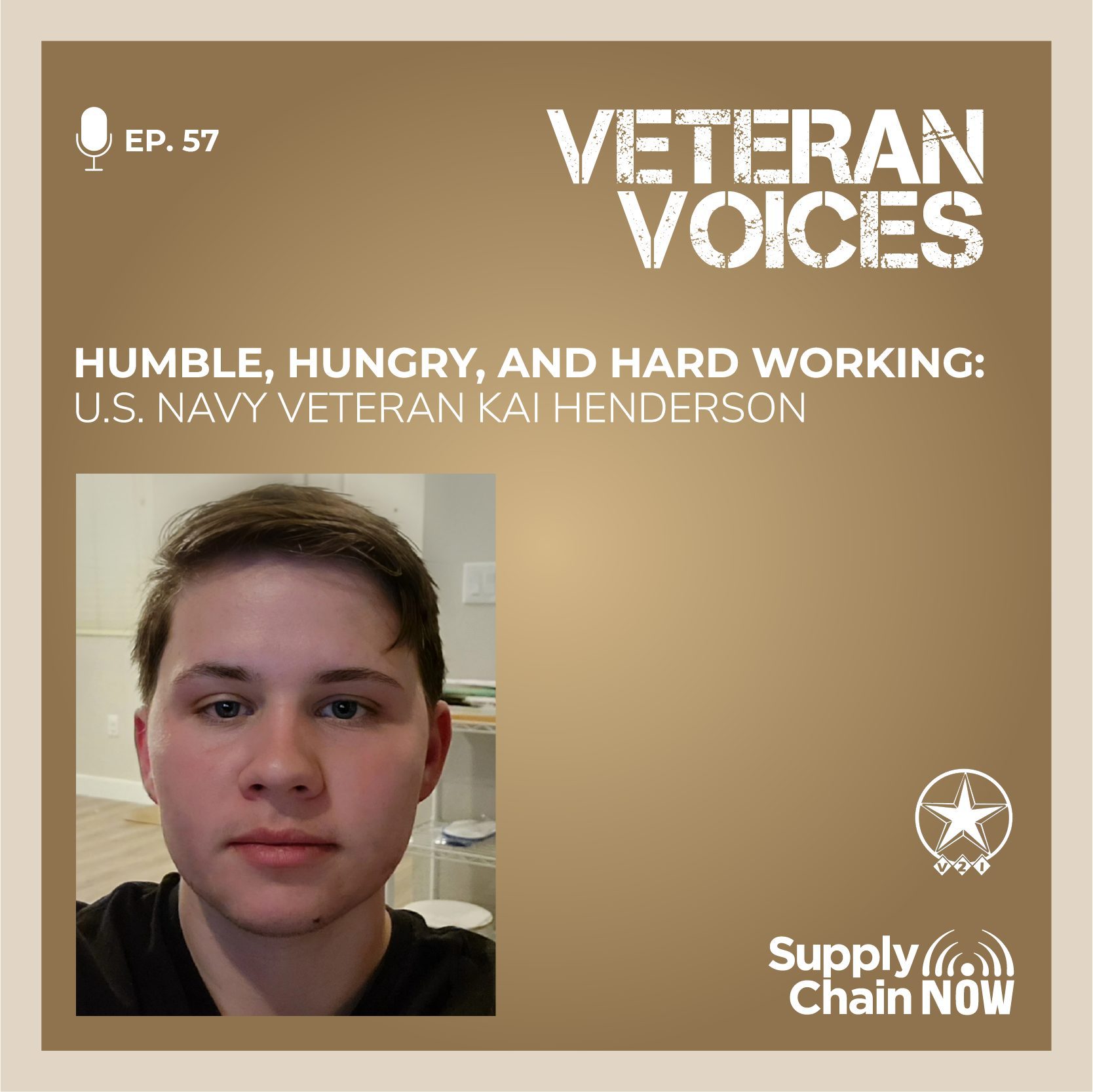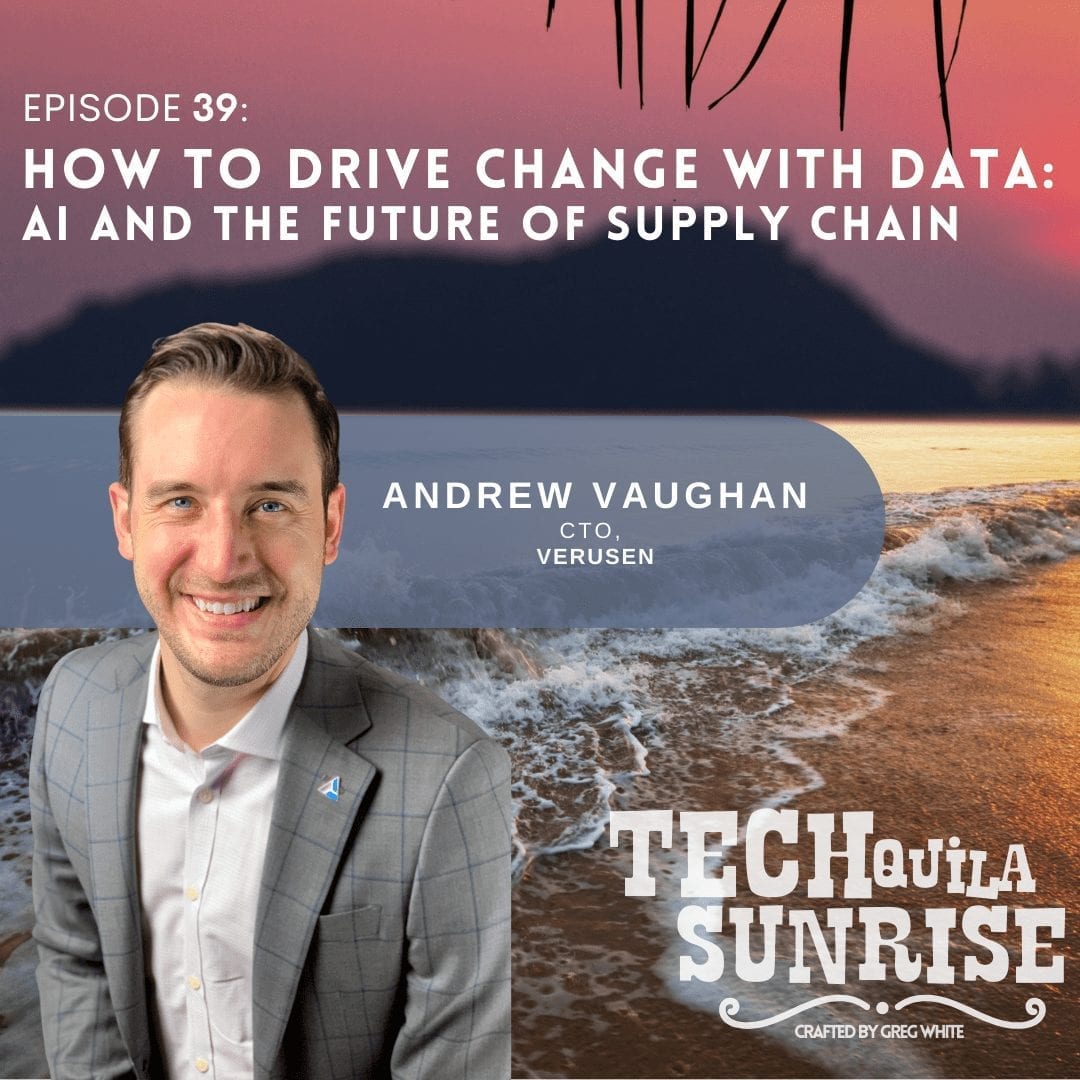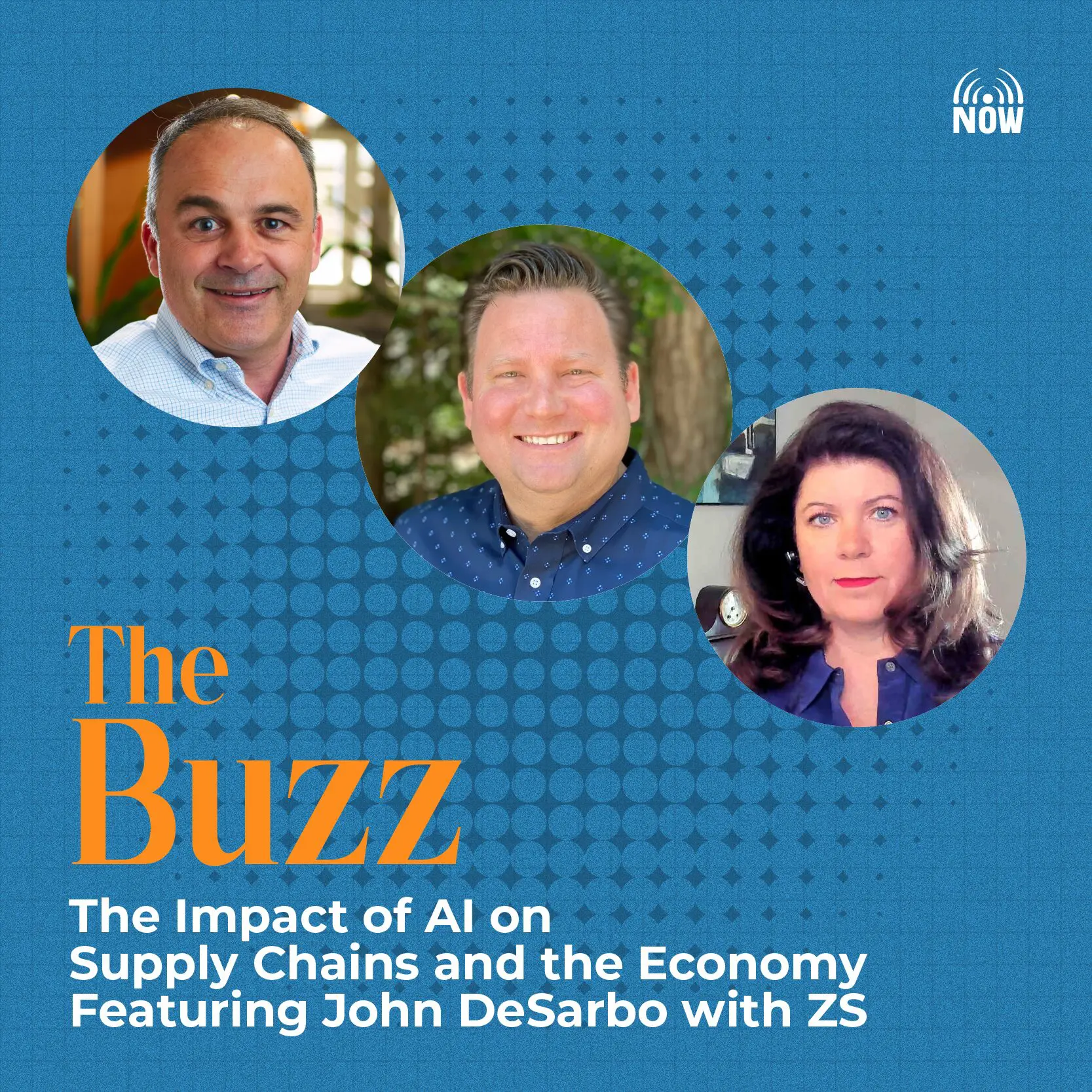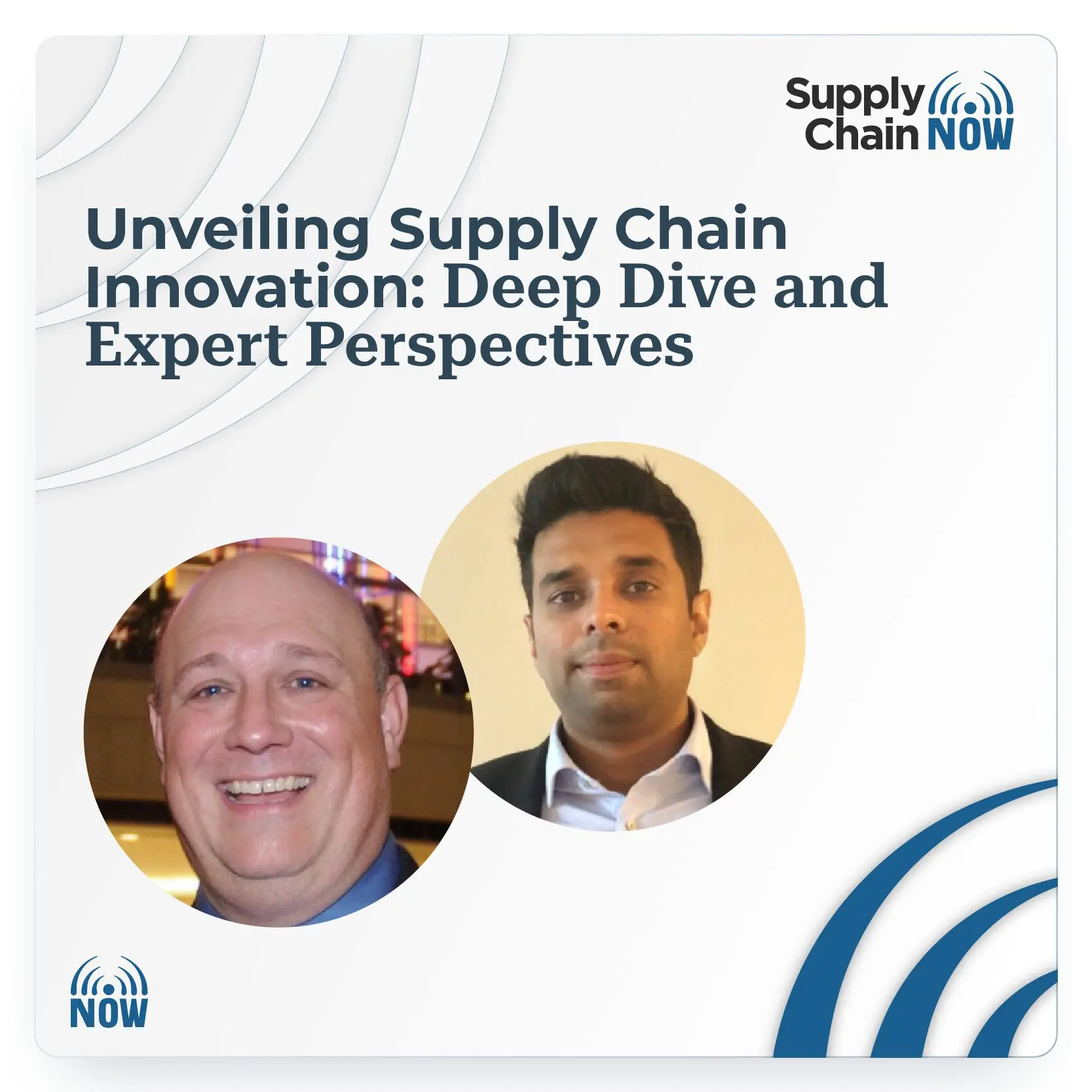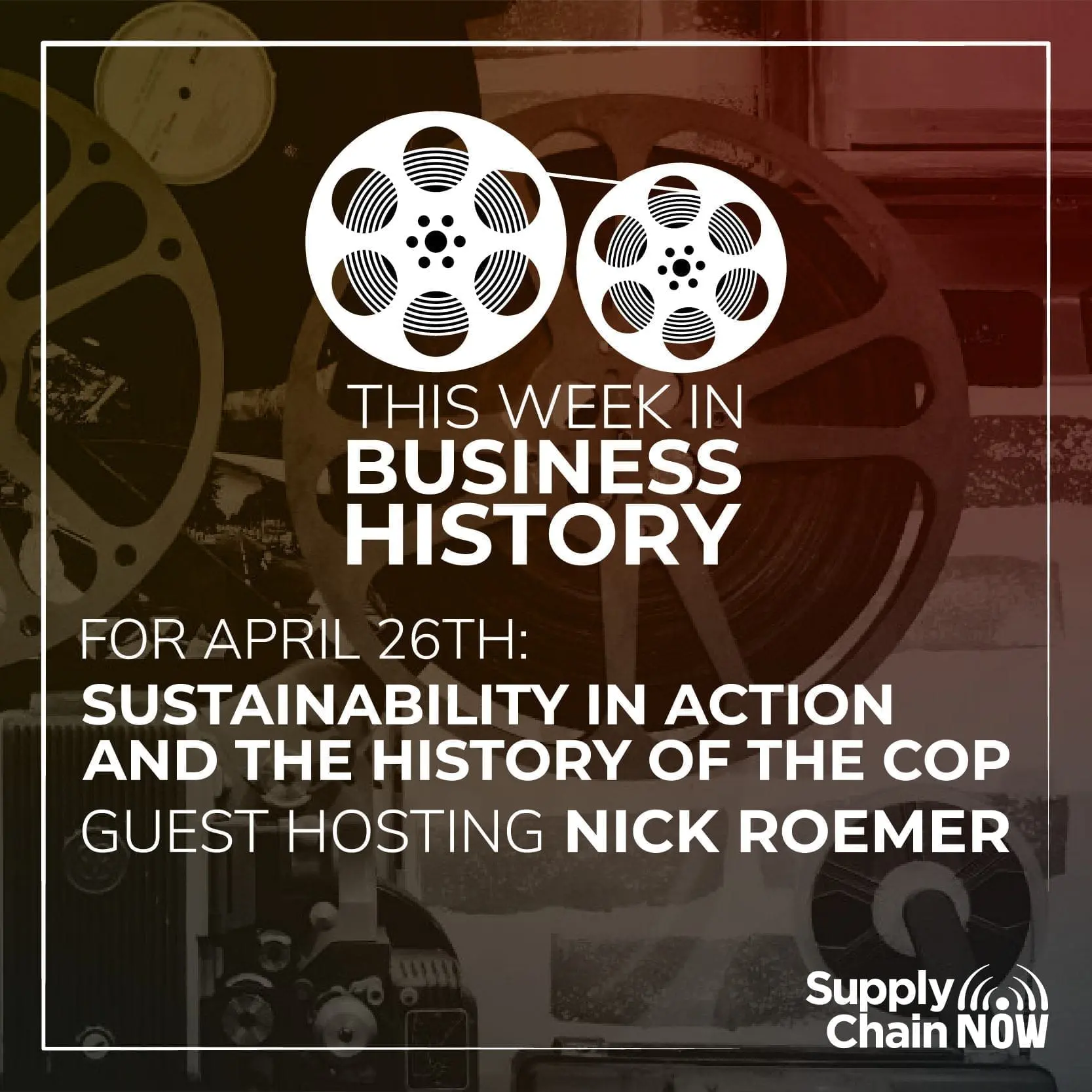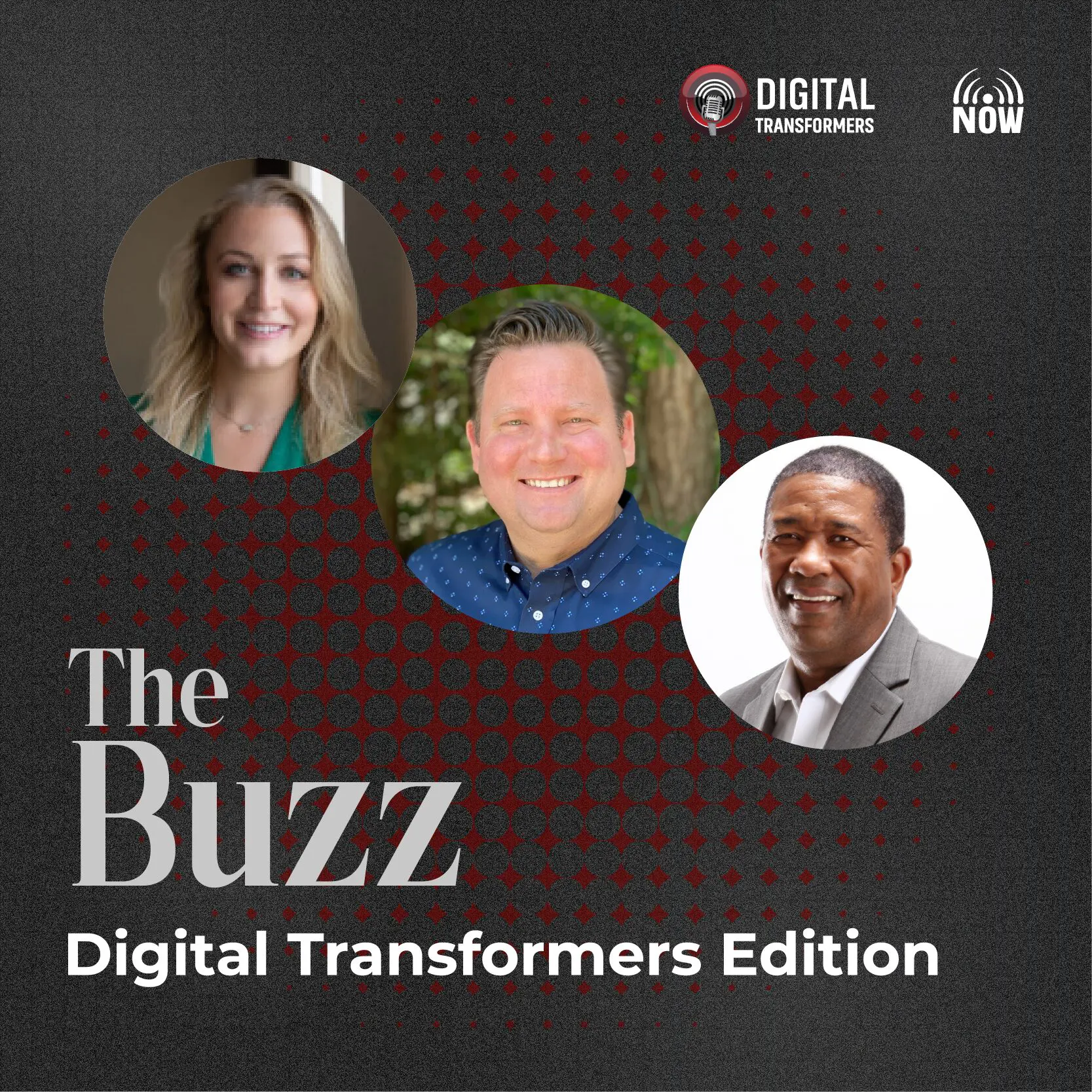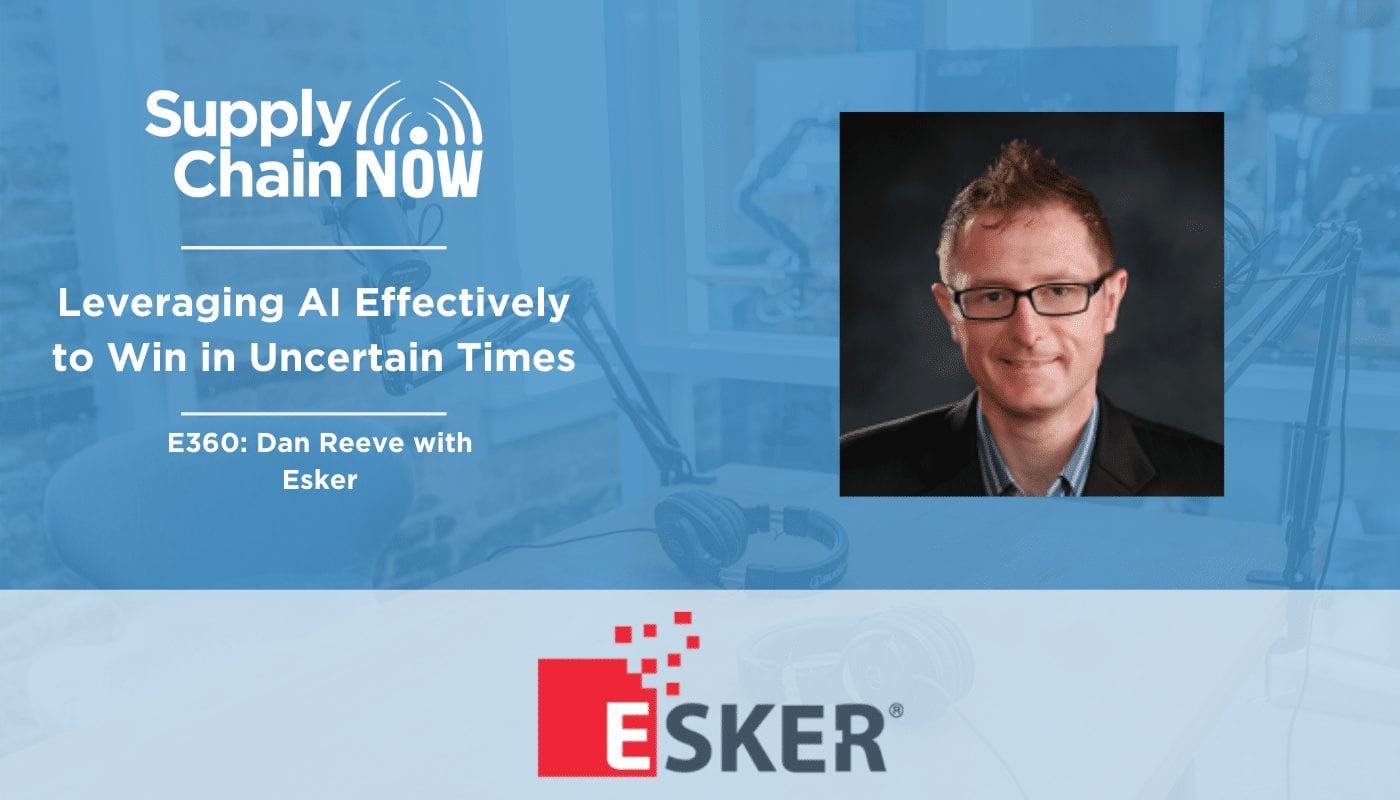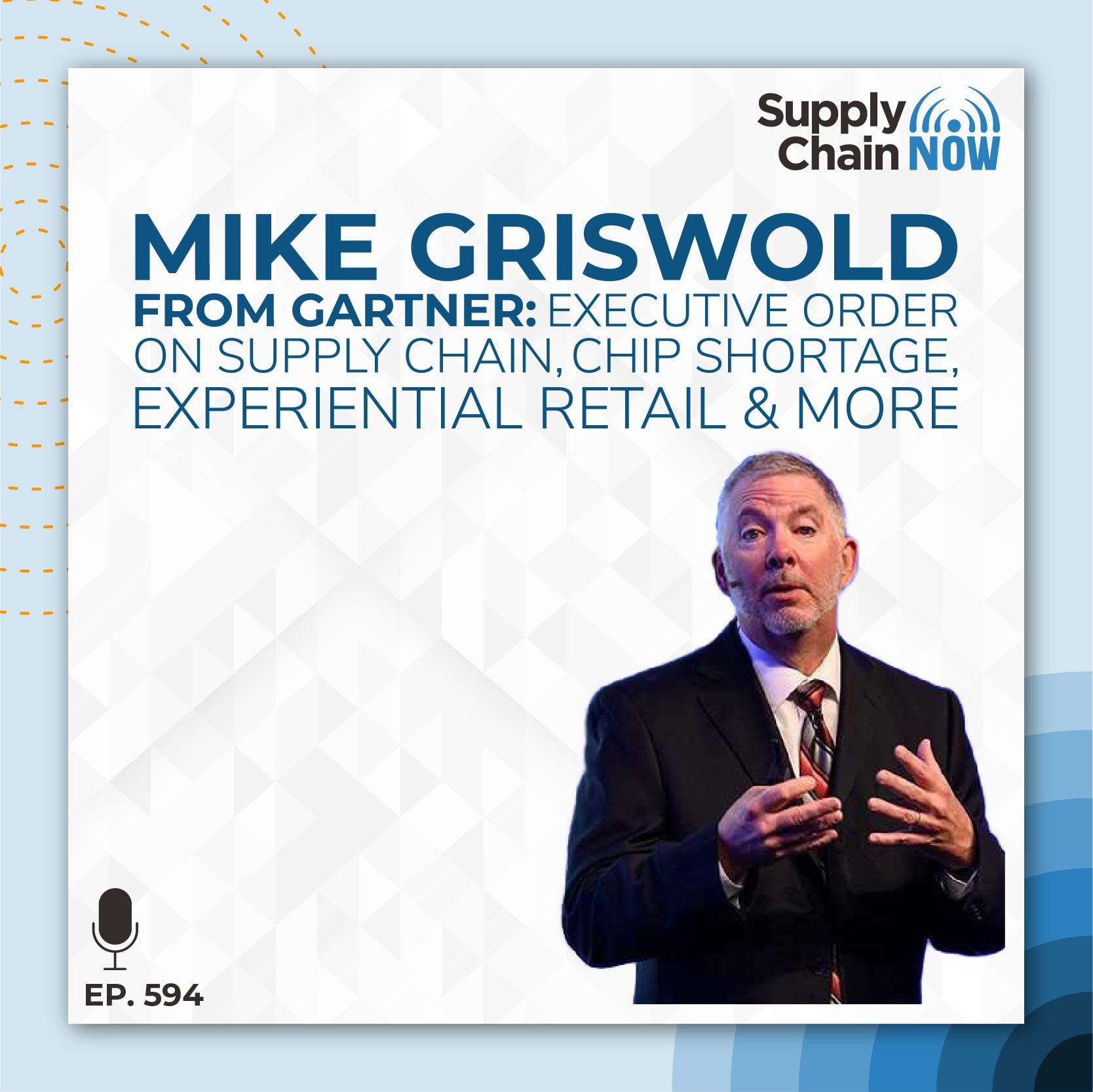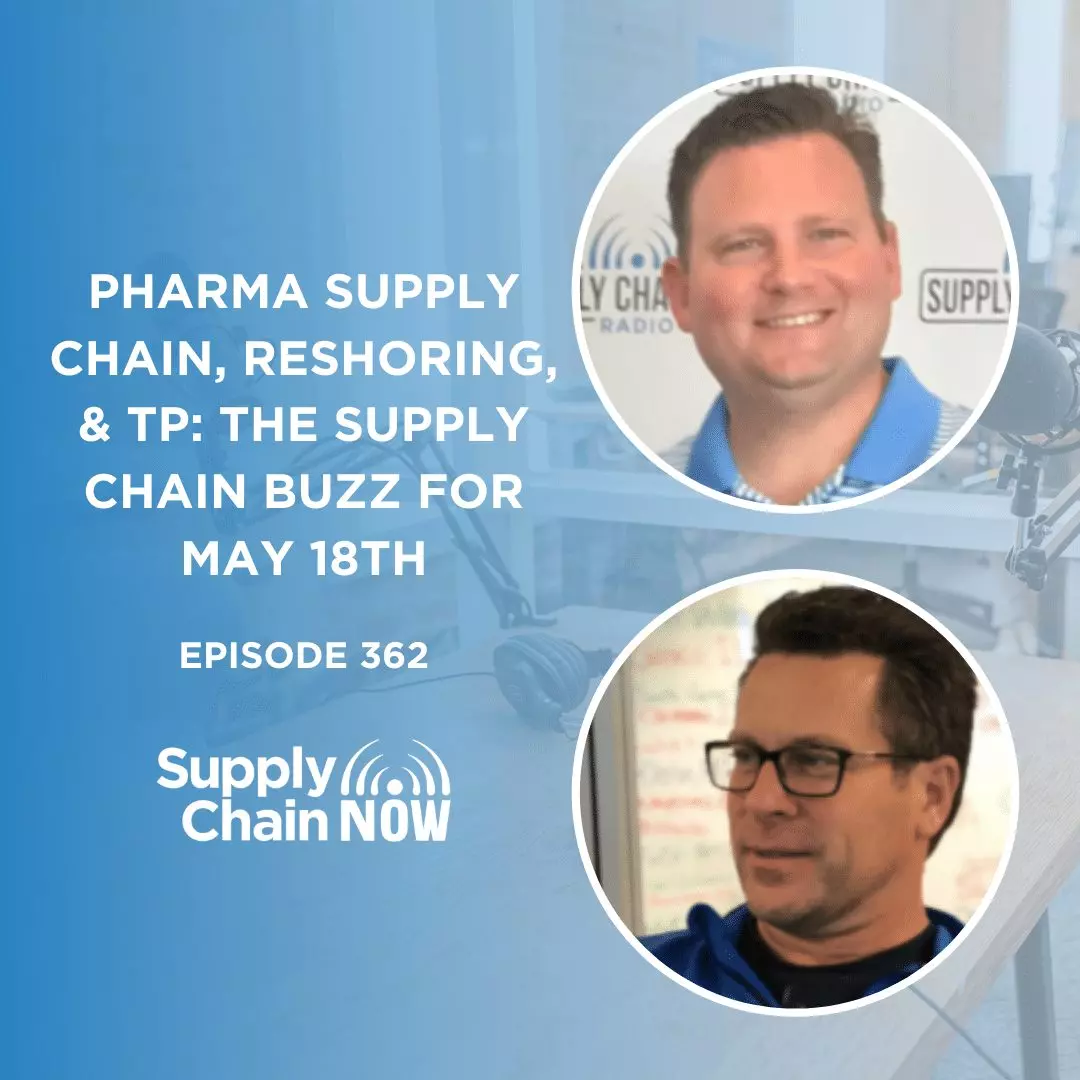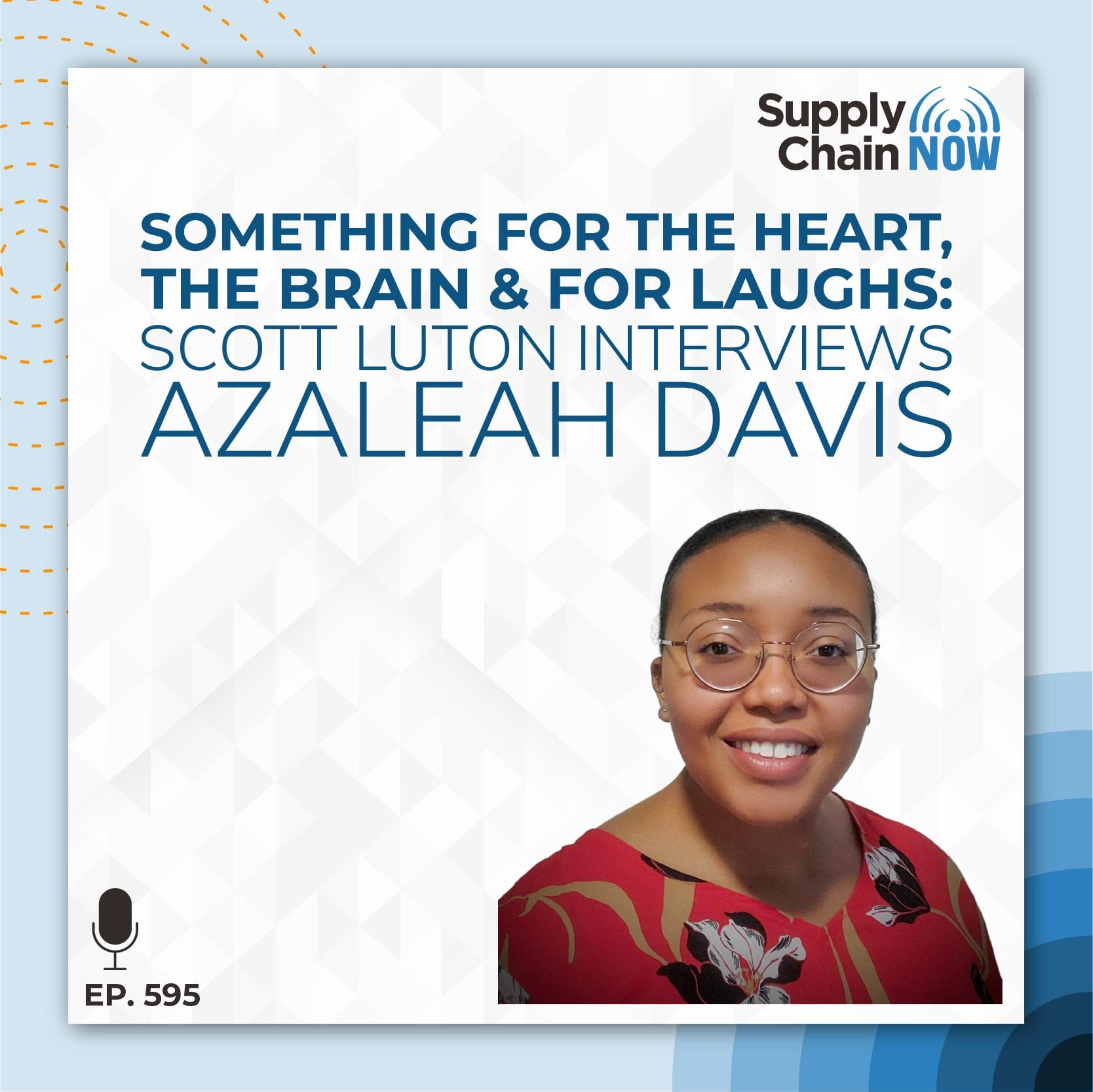Episode Summary
“Once upon a time, the ability to work from home was a nice to have. Now it’s going to be mandatory whether the employees demand it or expect it. And so if you’re going to do that, you need technology.”
-Dan Reeve, US Director of Sales and Business Development for Esker
Companies are faced with a number of challenging decisions to make as they deal with the continued fallout from COVID-19. Should we change our product mix? Push our payment terms? Bring back some of the contingent or part time workers we furloughed to be able to handle an anticipated uptick in customer demand?
Although certainty is a rarity in business today, one thing is for sure: companies can’t answer any of the above questions without access to data and analytics. Dan Reeve is the US Director of Sales and Business Development for Esker where he helps companies streamline and improve visibility across order to cash and procure to pay.
In this conversation, Dan shares what he has learned during the COVID-19 disruptions with Supply Chain Now Co-hosts Greg White and Scott Luton:
- Proceeding with select elements of a pre-planned digital transformation effort might be just the morale boost a supply chain team needs right now
- Companies that thought they were ‘digitally transformed’ are being confronted with the business processes and transactions that are still dependent on someone being physically present in the office
- The business processes that need to be purposefully accelerated, keeping risk as low as possible while driving continuity
Episode Transcript
Amanda Luton (00:05):
It’s time for supply chain. Now broadcasting live from the supply chain capital of the country, Atlanta, Georgia, heard around the world. Supply chain now spotlights the best in all things, supply chain, the people, the technologies, the best practices, and the critical issues of the day. And now here are your hosts.
Scott Luton (00:28):
Hey, good afternoon, Scott Luton here with you on supply chain. Now welcome back to the show on today’s episode. So as the economic effects of this crisis come into focus and the immediate risks to a supply chain have been identified, how can supply chain leaders begin preparing for not only the longterm, but prepared to design a resilient supply chain for the future? We’re going to be gaining insights own just that from an expert in the space. Stay tuned as we look to increase your supply chain leadership at ACU. Quick programming note, before we get started, if you enjoy today’s conversation, be sure to find us and subscribe wherever you get your podcasts from. All right, when welcome in my esteemed fearless co-host for today’s show, Greg white cereal supply chain, tech entrepreneur and trust advisor. Greg, how you doing?
Dan Reeve (01:17):
I’m doing great. I’m really looking forward to this conversation.
Scott Luton (01:21):
You know, we’ve had a conversation around automation and tools that are going to be necessary and how companies are recognizing what’s going to be necessary coming out of this seismic societal disruption. That’s right now the new normal certainly ahead and speaking for all of us. We can’t wait to get there for sure. Uh, but you know, Greg, there’s going to be a lot of assessing that did work that didn’t work in global supply chain in the weeks and months to come. Right? Undoubtedly that’s exactly what people are going to be assessing and I think they’re going to find pretty universally that if it was on paper, manually done or in, in a spreadsheet, it didn’t work. We needed too quick of a response. We needed to sustainable of a response and we needed the data to be captured and gathered to learn anything from it.
Scott Luton (02:10):
As times were changing so fast. Well put. Well, we’re going to get a head start on that conversation and that assessment in today’s episode. So with no further ado, the squall come in. Our featured guests here today, Daniel Reeb, director of business development with Esker, a wildly recognized leader in AI driven process automation software all around the world. Dan, how are you doing?
Dan Reeve (02:33):
I’m great. Thanks for having me. No, by understanding what’s worked and what didn’t work, this is really the perfect time for businesses to focus on digital transformation by realizing then that the necessities that are accelerating it. Right?
Dan Reeve (02:47):
Sure. I mean, I think one of the things that’s interesting is I think we all went through that. The shocker norm, that was a period of a month. There were many companies, everything on hold and took a breath, but what’s interesting in certain the last couple of weeks, last three, four weeks, we’ve had VPs of supply chain CIO has come back or go ahead with projects and I’ve been encouraging my staff to say, Hey, come on, ask why are you doing this project now? Because many, many, many projects have been stalled or delayed. Why are you doing this? We’ve had some recently, a chemical company came and said, look, we’re doing this because in their case they want to automate the capture of orders come into their business. They get orders through a variety of methods, CDI, XML, Papap and PDFs, and they said, this is part of a digital transformation.
Dan Reeve (03:32):
We were doing a project because not only do we think it saves money, it makes us more effective in front of the customer. We provide better customer experience, but actually we want to prove we can still do digital project. Especially right now, it gives, it gives the organization a morale boost. This was just the start of the many things that we were going to do. They had a whole digital transformation plan, so I’m excited. As painful as it has been, and I’m sure it will be for a bit, I think it’s, it’s really gonna light up a lot of CIO supply chain leaders, business leaders to the idea of, well actually we can innovate you and let’s go on to say don’t waste a good crisis. I mean, I don’t mean to be contrite when I say that, but clearly there’s opportunity for us to get better at what we do.
Scott Luton (04:13):
Love that perspective. And we’re going to dive into a lot more of what Dan Reeve has to say. I’m about automation, innovation and digital transformation, but for starters, Dan, we want to back all the way up and we want to make sure that folks get a chance to get to know you a little bit better. For starters, tell us a little bit more about yourself, where you’re from and give us, give us a goods on your upbringing a little bit there. Dan.
Dan Reeve (04:36):
So I’m from Norridge England, which is is similar to Wisconsin and I spent five years living in Wisconsin too. So it’s flat. It’s very much farm, farm country. And I was just, you know, keen. I grew up, couldn’t wait to join the military and get out of there. And you know the yes, age four there was a point where I nearly ejected out of a fighter jet. My dad was working on the jet and I was busy up in the cockpit trying to see where that yellow and black handled it, pulling at it, trying to get it to do to come loose. And the supply chain officers saw actually the maintenance and supply chain officer. So what I was doing and yell, get out, get out of that jet. So I was always a curious type of individual good at breaking stuff and not putting it back together.
Scott Luton (05:16):
Wow. In January at heart. That’s right. Absolutely. Well, let’s switch gears a little bit. Uh, now that we understand, you know, how to operate jet aircraft at age four, and let’s talk more about your professional journey. Now, as we’ve shared in the warmup, you’re a bit of a anomaly. I can say that three times. Uh, you know, a lot of folks have had a variety of roles, but you’ve been with escrow for over 20 years. So tell us more about that journey, uh, within the escort organization and some of the critical roles that have helped shape your worldview a bit.
Dan Reeve (05:48):
Yeah. So I, um, I joined sq. And my intent was I wanted to join a company that would give me a good five or six years as a foundation, um, in enterprise selling. And in the background, I still had my, my, my military reserve career for 12 years in both the British army and the national guard. They learned me to the national guard for a couple of years when I came to America. So I was predominantly working with clients who were running systems like Oracle, SAP, and I mean nowadays, any ERP and what was going on is first I’ve worked in, they let me loose in Holland and Scandinavia were paying for me to go over there. That was fun. And then, um, I was selling all across Europe and the UK and a lot of two thirds of my career. I, um, I wanted to go and work in Sydney.
Dan Reeve (06:33):
They gave me Madison, Wisconsin. But that was okay. Now I became a, a pack of fan. The met my wife in the corn maze. Life was good. So, but we were predominantly so, um, providing solutions to supply chain leaders and CEOs. You know, I, I like to see people say, what are you guys do? And I like to say, well, we are, we free up customer service reps, finance and accounts payable reps and credit credit collection reps to go and be rock stars. We free up their time so they can provide more value to suppliers and customers in the supply chain and the finance operation basically.
Speaker 4 (07:06):
So that’s a really interesting perspective because what we’re going to see is more and more companies doing more and more automation of so many of these jobs. I think elevating the current human capital that’s performing these jobs to hire meaningful, uh, less meaning, less menial type jobs and, and allowed, I think the type of solutions that you all deliver to tackle some of that repetitive type work. So, you know, as we think about what Esker does and, and, um, how it can help companies solve certain problems. I love to ask this question and that is, I would say in my office, Dan, but nobody’s in their office right now. But if I’m at my home or I’m walking down the hall and I’ve got a pain or I’ve got some key words going through my head, what are those key words that would have me a leader, a decision maker? Say I think Esker is who I need to talk to.
Dan Reeve (08:06):
One of the keys, I think the pains that many companies are suddenly had forced upon them is treasurers and CFOs are thinking, is my runway long enough? Can I land this organization on the other side of this gap has come up. We’ve got to make sure we’re getting our cashflow in. We can’t necessarily suddenly increase or maybe even maintain revenue at what we were getting. We can make sure that we, you know, go and collect our money in a timely fashion. We know which companies might pay a little bit slower cause if they predominantly serving the restaurant industry, could they be at risk. So there’s kind of some elements of us of what we do. They on overseeable side of the business order to cash. If folks are trying to, um, if they’re looking at it saying, Oh, go do testing the service reps well, are they really adding value by punching in orders right now?
Dan Reeve (08:55):
Are they differentiating themselves right now? And here’s one of the things we really are seeing. We may have furloughed some of our temporary staff that were responsible for processing orders. What’s gonna happen when, when the, when, when things do pick up a little bit and we start getting more volume, suddenly we’re going to be working harder. We bar SLES might, might not be whether you should be classic one for the CFO is Hey, we buy stuff. I can’t see what people are buying. Especially now that people are all at home, they’re buying things. I don’t know what they’re buying and if we are buying, we should pay them quickly because I’d like, or I’d like to know, negotiate, maybe move all those contracts and get better spend management or at least like to know is there an opportunity to get paid earlier because those suppliers, some of those would take an early payment discount if we paid them quicker. Maybe I’d like to know if we’ll have a better insight as to do I want to take advantage of that or not.
Speaker 4 (09:48):
And that’s a difficult navigation to do without all of the data available. Right. And I think we, we often as human beings miss that because we’re doing our day job, you know, so many times I’m responsible for X and you’re responsible for Y and we never cross paths to collaborate on something like that or cross pollinate. So tell us a little bit about what you do there at Esker. What is your role and how do you spend your day or how do you spend your days when you’re working? Well, you know, when I don’t have my feet up
Dan Reeve (10:23):
and drinking a cup of tea and joined a biscuit, you know, the reality is I look after the field sales team. I’ve got about 30 folks and to a couple of great managers that lead those teams. So my job really is to try and support those folks. And a lot of it is, is not just selling and pushing your product. I mean, I think we’re always trying to understand what is the, what is the value for the customer? What are they trying to do? What, how does this tap into the big picture? Because that allows me to say, okay, well can other industries benefit from this? Can we improve and add this to our roadmap? So I believe predominately I’m a sales guy, I lead the field sales organization, but I do believe I have a dotted line to product management to say, okay, this is what the market is asking for. The VP supply chain is trying to compete or trying to get through service or the VP supply chain CIO, trying to bring new people on board and give them tools to these people. We’ll let you stay and do and stay within customer service or supply chain. These, the, the job is a bit more interesting to the technologies and boring and ugly and they don’t want to use it. But my job is to sort of convey that message back to Esker because yes, it probably leads to more sales but also helps us develop and evolve.
Speaker 4 (11:38):
Yeah. You know, had a few technology companies myself and one thing I’ve seen is that the sales reps are on the frontline and you have to translate so often what we’re saying in the marketplace into what we’re actually delivering on the desktop
Scott Luton (11:54):
or in the browser. Right. And the sales rep see and hear that firsthand because they get the, no, we’re not going to go with it because we thought it did this or yes, we, we want it. And we’d also like it to do that in, you know, in order to expand our business, your business with us. Lot of good stuff. And we’re going to shift gears here and dive more into your, your thought leadership and your insights around three key phases here, Dan, the pre pandemic, right? The current state and then what we’re all all looking forward to getting into as soon as we can post pandemic or as gardeners referring to the aftermath. So let’s dive into the first one first. So up, up first, what were some of the automation trends that you were seeing private too prior to the covert 19 environment? Dan?
Dan Reeve (12:48):
Um, so I think CIO’s supply chain leaders working to improve the Omni channel experience. They were looking, and if I come this down a little bit, you know I’m, I told you on the farm book, by the way, I told you I was a farm boy from Norfolk, England, so I’ve got to speak in as best as best I can. I think what we saw is they were saying, okay, well I want to get orders in quickly, efficiently work out if it’s a change, make it easy for the customer and compete through service that was going on. Companies were looking to do perfect order or get as close to perfect order as they could. They were looking to compete through a, you know, real. In fact, some of our customers had told us they were doing this as they were, Hey, we can, we can detect rush orders, we could detect an order needs to get to a certain or go through a certain DC or there’s a cutoff approaching.
Dan Reeve (13:41):
We can dynamically detect all that stuff before an order orders even been fed into the ERP system or we can detect that order. That’s not been touched yet, that there’s key items or products or before somebody even got to it, feed that into our supply chain. So even though we haven’t fulfilled the order, we can sniff, we’ve got a sense of what’s needed. And I think that, you know what’s interesting is some of the CIO is, I worked with here in Denver before was saying, man it’s, it’s tough. W w we’re actually having to go and hire recruitment recruiting organizations to help us find supply chain staff and even customer service staff because the economy is doing so well. We can’t find those folks. By worry I hear that a lot of folks have been furloughed or or Mike get let go and now it’s like, okay well people are still going to have to do that work. Cause often you get the same number of orders but maybe you don’t get as the same, the same number of lines or the price that you’re open. So I think things are probably going to change. But there are some companies out there saying, well, we think we’ll still have growth or we’ll get back to similar where we were. We can’t just go out and suddenly highlights people. That’s just not going, not gonna work.
Speaker 4 (14:52):
You know, this, that’s not a dissimilar story to what we saw during the great recession, right around 2008 or so. Uh, you made me think Dan, of, uh, of, uh, one of my neighbors owns a big plumbing supply distributor ship and they lost a chunk of business of course, because the housing market was hit very hard, but then they gained it all back, but they didn’t, they weren’t able to gain all of their staff back. So they wound up doing more orders with smaller customers, you know, and their customer mix changed as well. More more orders with smaller customers, with fewer people for the same amount of volume as they were doing before. And it was, uh, straining on their staff to say the least. So I can see where as the work dynamic changes and, and it will change for the next several years. Right. As the work dynamic changes, people will be constantly evolving how they approach various processes within their company.
Dan Reeve (15:55):
I think this was going on anyway, but I think this, this exercise that we’re going through right now, unfortunately it’s just, it’s in many ways it’s turning a flashlight or a torch into processes and parts of the organization and exposing them. I mean even for example, on the finance side, you know, you still gotta pay invoices. You still gotta pay checks to suppliers. I can, I know for a fact many of our customers had said, nobody wants to go in your office and pick up that paper and I know that my controller says, I don’t like to do it then, but I’ve got to do it. But then that’s fueling us even as an organization, but said, right, you know what? After this, my cor has said contractually, when we sign up with suppliers, we’ll say to them, you have to let us pay you electronically or you have to send us your, your invoices to us will have to be sent to us electronically because we don’t want to be, if we do have a similar situation like this or if we have to lock down again, but we can’t be, we can’t be doing this again.
Dan Reeve (16:50):
And I think that’s probably a sentiment that will apply to many companies, many business processes once we, you know, I think you already see them starting to think about that now.
Speaker 4 (17:00):
Well, so you kind of rolled right into how things were, I think, and I agree with you by the way, Dan, that that a lot of these evaluations were underway and this pandemic and societal disruption was a catalyst for making some changes that were coming. Anyway. I’m interested because you guys are seeing it every day still, right? What are some of the risks or performance concerns or even excesses that you’re seeing being exposed in the, in the midst of this pandemic? Right.
Dan Reeve (17:38):
If I go back to the supply chain side, I think what I’ve seen is, um, some of our customers have said to us, Hey, we, you know, we’ve changed the SLA, we’ve lowered our SLA that we can offer. Customers always said to customers, we’re not going to take any RMA requests right now because we need to focus on certain core areas. And um, that’s just how we’re going to have to operate for a little bit of time. Now I think, you know, this does make me think a bit about another side of our business is supply information management. There was talk before this event and now I think this is getting ramped up. One of the things that the finance department and procurement often Baker over is well, who’s going to onboard new suppliers? Who’s to make sure that they are, they’re not a restaurant business.
Dan Reeve (18:20):
They’ve been through training, they’re insured, we’ve got the right bank accounts. I was listening to a webcast yesterday, um, and they were talking about the risk, the likelihood of fraud is increasing. Maybe, you know, some employees will be in a difficult situation. Perhaps the partner has been laid off or furloughed just maybe a chance that it’s more likely to happen. What we’ve seen is a lot of it was going on before, it seems to re picked up in the last five weeks for us is a lot of companies saying, okay, I want an easy mechanism where we can vet and onboard suppliers faster because you know what, we may have one or two small or really important strategic suppliers, but we might not be able to rely on those folks only or what if they go pop. Then what? That’s a big risk to our supply chain.
Dan Reeve (19:05):
So what I’ve been hearing is a lot of companies saying suddenly we need to onboard more suppliers to have more, more to spread our risk, but we cannot rely on the prior processes where it could take 30 days and for different requests or the supplier, the procurement, finance, and everybody else just finally get a supply over the line. That has to accelerate. Now both because we might be trying to look for new opportunities to save money when we buy goods and services. But I think we see a lot of, lot of it is we want to lower our risk for a variety of reasons and having more suppliers might help do that.
Speaker 4 (19:42):
It’s been a topic of some significant discussion that companies should diversify their, their sourcing, right? Meaning I’ve heard all sorts of terms, but the one that sticks in my mind is China plus one or China plus two or whatever, but whatever that is the necessity to mitigate that risk through multiple sourcing channels is, is one, but it does, as you said, in addition to the other economic conditions that your workforce might be going through, that opens you up to quality and fiscal and fraud risk as well, having a more diverse plier platform. All right, so coming out of this, and we all hope we’re coming out of this soon, right? As you look right word, what would, what is a primary bit of advice you would offer for helping helping companies strengthen their capabilities with automation, with process or whatever to to prepare for what’s inevitable and in terms of the
Dan Reeve (20:48):
next shock or disruption to the workplace? You know, that’s an interesting point because whether it’s covert or other things, I do think some of the, I use this exercise to write a couple of blogs and I’m there. It was a Greg excuse to go back and talk to a lot of CFOs, CEOs that we work with and reconnect with them and there was a point in there, you know, someone said, I’ve rested and you had the conversation down because I’m getting millions of emails more than I ever do. Inequities at home, just sending emails. I did come away with this appreciation that many CIO is looking at this saying this or something else could happen again. I probably will. I think most in a, I’ve seen some studies that 60% of CEOs expect something like this to happen again in the short or medium term.
Dan Reeve (21:32):
So I think certainly enabling, there was a point in the past where customer service folks could do order acquisition, do order entry from home perhaps as a perk. Well, I think you’re going to see, and we’ve put it already, many of the reports that talk about after this employees would perhaps either expect or you or you as an organization might want to have shifts where you allow some of you, your teams to work from home a few days a week. I could even see companies saying, you know what, every August, like our European colleagues, and I say that with tongue in cheek. So I worked for a French company. Every August we’ll work from home as a dr exercise, we’ll test that we can do this or all back at back office staff, all those involved in auto management, finance, receivables and collections. We’ll test this out.
Dan Reeve (22:17):
So I think that once upon a time the ability to work from home was a nice to have. Now it’s going to be a mandatory whether the employees demand it, expect it. I think that business is going to look at it as is sort of, Hey we need to prepare for this. And so if you’re going to do that, well you need technology, not just our technology, but you know, you can then use various technologies to ensure you can get approvals on board vendors to process your orders, um, and identify any orders that need to get, need special instructions or does it need to go be routed through a certain DC cause your normal DCS got down, can recognize for our, I mean one of the things is recognized priority skews. Some companies right now, I’ll give you an example. So very relevant example. You know, we’re proud to be helping out via via manufactured ventilators.
Dan Reeve (23:06):
So one of the things they’re doing is they yes, they’re folks working from home. Yes. They said, right, we need to prioritize because we’ve got to get ventilators offense later parts that that’s not all they do, but that’s a key component of what they do. Well, we need to focus on sniffing in the orders. Coming in, prioritizing those orders, getting those orders to the area of the country that need those things as the most, well that’s sort of, I think what we learned, our ability to shift and pivot whether there’s a pandemic going or not. I think people we’ll, we’ll, we’ll, we’ll be looking to take advantage of those, those abilities to move quickly on the fly in the future. Yeah, I think that’s going to be critical. We likely
Speaker 4 (23:46):
not have a situation where the entirety of commerce is essentially shut down across the planet. But I think, and Dan, I’d love to get your feedback on this. I think we have been ignoring the risks. Many of the risks that we have faced every day and simply has. Our friend Mike Griswold from Gardner says, we have been, uh, rewarding the arsonists rather than preventing the fires. We have been working really hard to overcome these sort of crises and disruptions, not nearly of this scale that happened all the time. Rather than really doing a risk assessment and creating a risk management process that helps to prevent or effectively recover from what may be a great multitude of these disruptions in the future.
Scott Luton (24:36):
If I can chime in here, uh, Dan, um, uh, our enjoyed your comments earlier about options for getting discounts, uh, if if folks pay on time or early and, and uncovering those options. Um, along those lines when it comes to suppliers and vendors and what have you, if you could speak to two things that you’re observing. First off organizations, not only checking on existing vendors, but really looking to onboard new vendors faster than ever. Speak to that need and then also want you to speak to, if you would, Dan, the incredible importance that exists, uh, and, and will certainly exist moving forward about making sure your, your strategic suppliers are critical suppliers, not only keeping them, but ensuring that they’re, they’re stable and, and they’re healthy from a business standpoint. Speak to those two points if you would.
Dan Reeve (25:30):
I have to be honest. I can, I think I can only go so far. I’m not necessarily an expert here, but why, what I will say is what we see. I can base it on what we see. So definitely an uptick, uptick in folks showing interest in supplier information management and order to vet suppliers. And I think that isn’t just, are those suppliers financially stable, you know, and you can do checks or we could do checks based on, um, you know, dun and Bradstreet and others, but also okay are the, um, you know, various other third party, um, solutions that sort of tell you, okay, well, geo politically or the other in the right location. And I’m sure my friend, he, um, he’s a head of sales over selestica. We’ve been talking, you said, yeah, it has been, you know, one of the top, top three outsource manufacturing companies in the world.
Dan Reeve (26:18):
And he said, look, we’ve seen tons of even before this and now it’s accelerated. Tons of folks saying, well, let’s, let’s diversify our supply chain. Look at nearshore, look at Mexico. We’ll look at other plus two years. You were saying, you know, other facilities in, in, in Asia, let’s, let’s do that. Let’s work with Scholastica to maybe create a new operation on our end. What we’re seeing is what I think is going to happen, what we’ve been reading about is companies moving their backend, throw, assess like the shared service and establishing a shared service. Maybe it’s closer to home and I think we may well see possibly, maybe not immediately, you know, but we may see more jobs coming ever closer to the U S or even back to the U S from a backend perspective. I the folks that receive the orders, processing the orders, do some planning, chasing the cash, et cetera.
Dan Reeve (27:04):
So I can’t give you too much on on that supply information management, other than I know that, no, not everybody’s going to pay the suppliers early. I realize that there’s a liquidity crunch out there, folks. I think what we see is treasurers and CFOs wants to know through my buying off, can I save some money if I, if I consolidate the spend and can I see who’s more likely to take an early payment discount and should we, you know, do we want to take advantage of that or not? Maybe we want to sit on a cash or maybe we want to pay them early, but pay them using a third party provider of that money, not necessarily off their own books. So that’s some of the stuff we see going on.
Scott Luton (27:41):
Clearly based on the conversations and the blogs and, and the folks who are reaching out to, uh, you’ve got your finger on the pulse of a lot of movers and shakers industries and you know, a lot of senior, especially the CEOs who are so involved in these digital transformations that have been taking place and those, that, that will be taking place or those that will be picking up the pace, uh, to get more traction in the months ahead. Right.
Dan Reeve (28:06):
Yeah. I’ve actually, I mean, I won’t lie to you, let’s be honest, in the first two weeks I decided to go and write some blogs because what happened on our end is this, I had some large manufacturing companies, one of them here in Denver deployed our technology across the world and then said, Oh, we’re going to stall the project for the U S and I said, why isn’t that? Is their money thing. They said, no, we don’t know how to deploy technology and innovate. It will be successful at a time when everybody’s suddenly working from home. And that prompted me to say, okay, I’m going to write a blog. I’m going to go and interview lots of CEOs and consultants, system integrators and say, okay, well how do we do this? I don’t think we can just stop and lay down our tools and wait it out.
Dan Reeve (28:43):
I think we’re still gonna have to, you know, take some precautions. We plan ahead. And so what I decided to do is that gave me an excuse to go and talk to lots of these customers who’ve worked with and say, okay, what do you think we should do once your ideas, you know, is it more training, more testing, deploy technology and smaller bite size chunks. More use of zoom calls to make sure that you can see your people are struggling with the technology and have the buy in business unit leaders give their people more time to actually test. Because let’s be honest, you don’t have a train stood right next to you. It can be a bit harder to understand technology. Yeah. I used it as an excuse. It was, it was my savior for a week or two there cause I was like, well what are we going to do?
Dan Reeve (29:19):
But what was interesting is this, I say this to anyone, anybody who oversees the sales function, it was easier to connect with customers then I think it’s been at any point in the last 10 years because I was able to pick up the phone and get through to CIO, CFOs and some senior folks because suddenly everyone’s at home and maybe they won’t meet. I mean I think it was accurate. People were working a lot, two or three hours longer at night, but it was possible to pick the phone and talk to people. And if there’s ever any silver lining come through this exercise. For me that was, I enjoyed the reconnection with people.
Speaker 4 (29:48):
That’s interesting that you say that, Dan, because I have a daughter who sells technology as well and she has experienced exactly the same thing and they’re actually quite interested in talking because there’s not a whole lot going on in some businesses as well. So interesting. I think that some of the social dynamics that we’re starting to see come to the fore. Hey, I have a question for you because what you said prompted me to think about a discussion we had earlier today when, again, when we were talking with Mike from, from Gartner, and that was around supply chain visibility. It seems like there’s a stronger than ever need for supply chain visibility to understand what’s going on in your supply chain and in an outside of your enterprise. Can you tell, share with us a little bit about what you’ve heard or seen or expect to see around that?
Dan Reeve (30:40):
Actually, I’ll go back a decade because it’s a similar story, but we have a different driver right now. I think if I go back 10 years ago, we did a project with Kimball furniture and many of us will have used their desks and chairs and back then what they said is right. What we’re trying to do is move from, I think they were number five or four in the market. We want to get to number three. I said, how you can do that? Well, we’re going to deliver product faster than anybody else. We’re going to optimize warehouse, DC’s, supply chain technology, and to use an expression that you know from from the British army, when an order came in, they wanted that order to get processed at the speed of a thousand dissolves really fast and so they wanted to compete through customer experience. They wanted the customer to go, wow, that was quick.
Dan Reeve (31:20):
You delivered faster than I expected. It was almost like they were thinking Jeff bees off Amazon like before we got all used to buying everything off Amazon. So I think that’s going to go on again now, which is now there’s the companies want early detection of key skews and quantities and they want to know if there’s a problem with the order. Is this a change order? What’s going on? I think people want advanced visibility of what’s being ordered so they can quickly make decisions of Oh well we need to, I can’t get it from that DC. Okay, we’re going to have to ship it from here or, or talk to a different supplier. And I think you can ask her for a minute. I think other vendors like this, I know Brock Johns at garden does a lot of research on um, supply chain management software.
Dan Reeve (31:59):
I mean, I think that people like four kites, I think is one of the good product out there. Now that we have any affiliation with them bumping people talk, well, I could imagine that people are going to look at not just what orders are coming in, but once you’ve got them, where are we going to get them? How long is it going to say if any one of these pieces of the jigsaw puzzle gets upset? What’s our impact? So yeah, I think our job is we can help give visibility of what’s coming in, but then there’s loads of stuff that happens after you’ve got that order. Then what happens in terms of manufacturing it, sourcing it. Are there any delays in shipping or you know, what other factors have made them thinking about it?
Speaker 4 (32:30):
Gartner keeps coming up here. Uh, and then we all know that they’re the Gartner top 25 supply chain rankings are coming out in a few weeks. That’ll be interesting. As always, it is each year, uh, as a look
Scott Luton (32:40):
at some large global enterprise companies and what they’re doing to move their, their supply chain organizations and overall business forward. You know, along those lines. Dan let, let’s talk about, uh, some of your key observations related to current and ongoing Gardner research. So, you know, related to the global pandemic, what key takeaways from Gardner do you find the most important to consider? For our audience.
Dan Reeve (33:02):
John have been talking and many of us have been to the gardener events in Arizona. We’ll have heard Gordon say innovate in the turns. Now they’ve got, you can just Google this and find white papers out there that talk about how companies in the last downturn, even though I think only four for one 50 companies did this would actually go and spend money in investments in technology and process improvement. They said, you know, there’s going to be so much pressure on you to stop innovating, to pause that did that checks and then at that point was if you followed a lot of the fortune 500 companies that did make those investments, they all outperformed their peers over the following decade. You know, that’s easy. You might say, I can read that. That sounds great, but for me, what’s been two stories? I’ve literally had, CIO is getting such a risk in the last few weeks and I won’t say who they are, but they’ve come and said, I want to innovate.
Dan Reeve (33:51):
I want to collect my money faster. I want to beat, use this as an opportunity to beat the competition. That’s their words or what they wrote in an email. Because you know, clearly they look, I think they’re keen on protecting the vet companies and taking care of their staff. They compete and they have jobs and they realize right nine is no news. This is an opportunity that since it probably all of us feel a need to innovate and improve and not keep operating as we did because you know, we’ve all got families to take care of too. So I think, I think many of the things that go on to say I really appreciate, cause I’m actually when I see it then with CEO’s and CFO’s coming back and saying, well yeah ultimately we don’t want, we want to improve our day sales outstanding, our collections efficiency. We want to outperform the competitors.
Scott Luton (34:36):
And, and you know, part of the silver lining of the dark cloud that, that, that has been the pandemic environment has been the uplifting stories, innovation stories. You know, you’re talking about the organization that makes ventilators earlier that y’all work with to see automotive companies. And other companies that don’t make ventilators figure out how to do it so they can throw their weight behind the fight against COBIT 19. Undoubtedly, while that’s a meaningful impact, fulfill good story today, it undoubtedly will lead to real innovation down the road that will make businesses smarter, brighter, more innovative that ultimately all consumers will benefit from. So that’s, you know, Greg, you and I have had that conversation a thousand times in recent weeks moving at the speed of a thousand Gazelles. Through those conversations, despite these troubling times, companies are going to innovate to solve problems old and new. Right? Well, and we’ve seen so many companies who are doing exactly, Dan, what you said, and that is they’re using this time to prove they can do it. So many of them are using this as a leverage point for their
Speaker 4 (35:37):
technology organizations to augment the tool sets that they’ve got or conduct a digital transformation. Technology companies are, are enhancing their tech. Maybe you all are too. Uh, because the slowed pace of everyday business actually allows the acceleration of the technology organizations to do what they do. They’ve got more access to the people with knowledge. And those are, you know, some of your salespeople, Dan, those are product management people. Those people hat are more accessible and they can catalyze some of the transformations that companies want to make in these technology areas. It’s a really interesting dynamic.
Dan Reeve (36:19):
Well, I agree. You know? Right. So the 60 minute TV show, was it two weeks ago where they talked about what Ford was doing and I thought it was, I thought it was, it gave me a lift and it was inspiring. And there was a moment there, I think the CEO said, Oh, well we’ve, we’ve taken what we’ve learned here. It took a completely different area of how we do quality testing or how we, how we operate as a company. And I have no doubt there’ll be, in the future, there’ll be business schools we’ll be teaching. Okay, this came up, everybody was racing to sort of innovate and supply ventilators or, or, or look even the companies that own a record. I think it was suddenly said, you know what? We can make hand sanitizers. Alcohol is a core component of what we make normally, you know. Okay, we can, we can, we can, we can, we can adjust. So I do think that that’s what’s very interesting. It’ll be interesting to in 10 years time when we look back.
Scott Luton (37:06):
Yeah. Alright. One final question as it relates to digital transformation because it seems like to me, hearing some of the things, you shared some things directly and indirectly and it seems like other third parties agree, many organizations are going to be, they’ve got all more the reason and ammunition and business case to push digital transformation even harder and faster and with more intent now. Is that, is that accurate, Dan, from what you’re saying?
Dan Reeve (37:33):
I think so. I’m not going to say to everybody should just be 10 times easier. I think companies are still going to have to look at it and say, okay, right. Specifically how much time do we save? How does this cut costs? If anything? Having gone in being a sales guy in the last recession, I learned you had to help companies. Yes. There’s somebody there that has an emotional reason. They want to implement technology and change, but you’ve really in these times have to be four times better. Well, okay, well this going to save us. What’s the business case? Where’s the efficiency or how does it help us gain? But I think big picture, yes. What’s going going on now is everybody’s aware of the need to improve and collect cash faster. Everybody’s aware of the idea of digital transformation and I see it as a bit like it’s being cooked hotter, it’s boiling on the stove now. Everybody in the organization, perhaps it was a buzzword now I think people are more, more like, okay, yeah, I get it. I’ve seen some situations where we didn’t have that and it was problematic when we were working from home. Yeah. I think for the supply chain technology leaders out there are interested in implementing technology, this probably allows them to the subject to the stakeholders or the steering committee. Clearly there’s still going to have to justify it and probably have to work even harder on it.
Speaker 4 (38:43):
You’ve touched on two critical issues that will assure the success or enhance the opportunity for success in a difficult time like this and the difficult time, the inevitable, at least short term recession, who knows how long the recession is. But in any time that a recession occurs, cash is critical. And the recognition that you need to be more efficient and effective is critical in technology. You know, robotic process automation, AI vis, you know, visibility and analytical tools, all of those things will help companies. And, and Dan, I’ll share with you something we’ve been saying for some time and that is if you have been foolish enough to build your house on sand being your technology house and you survive this situation, be wise enough to next time, build it on stone so that you survive the next coming pandemic. And I, you know, that makes me think a lot about your, you know, one of the things you shared in the, in the pre show talk was fight, move, live. You know, when you’re fighting in, in an urban environment. I think that’s, that’s a really interesting concept. So can you share a little bit about that fight, move live concept as we kinda move to close here?
Dan Reeve (40:00):
Yeah, so I mean that was, I was a combat engineer and a British army and the, because there’s many different tasks that come throughout you, but the whole idea of that I was in the Royal engineers and that really the way they view themselves as our job is to help the army fight. Like I was so clear, minefields, click, urban areas move and to live and he says sometimes that might mean well okay we need to feed them and house them. A variety of things. I think for me when I was in Iraq I got really interested in supply chain from a certain point of view because I’d see things going on around me. I when I first got off of the jet and I landed in Kuwait, I felt like a can of beans cause I got, I got zapped, I got somebody put a barcode barcode scanner up to me and zap me into theater.
Dan Reeve (40:39):
I said what are you doing? She’s like, I’m booking you in. You’re an asset. You just got booked into a military theater and we were showing everybody back at base in, in, in HQ, command in the UK could see where you’re at. Wow. That important son. But they can see where you are. You just got barcoded into theater, you know. And then I saw things like there was a supply chain issue that led to 25 of these fighter jet. So the Kuwaitis had, if I find it yet, then we will kind of, they were there. They were all sitting there, but they were, they were in it, you could tell that they couldn’t fly them. There were bits missing. And I remember saying to a few folks on those jets, kind of expensive, why are they sitting there? Well, they’re missing a load of supply pieces and they’ve been trying to get them into theater, but they’re coming from France and they’re not here yet.
Dan Reeve (41:20):
So, you know, it got that great interest in all the way through to, a final story I’ll leave you with is we were in Missouri and we didn’t have much water. Um, we, so he said, right, we’re going to, we’re going to ration w know you can only have one shower every 10 days, but we’re going to do you just use wet wipes. But then somebody put out a message on Facebook saying, we know this squadron, we don’t have any wet wipes. We were dirty, we haven’t even got enough water to drink. It wasn’t quite true. But the media in the UK took this. Suddenly the whole of the British Isles was concerned that my squadron was thirsty, dirty 15 vehicles carrying wet wipes arrives to drop off. So, you know, there wasn’t much true authentication of the demand, but this signal got sent back to the UK that these guys need the supply and the needy right now. Ironically, the company that makes those wet wipes is now one of our customers. And I tell, you know, I joke with them, well you guys must’ve made some money cause it’s when 15 vehicles turned up, I can point a stick out. And it was kind of funny. We didn’t, we didn’t know where to put these vehicles, let alone
Speaker 4 (42:25):
solving one problem creates others. But, but Hey, blessed be the ties that bind and folks that jump in there with action in to, to meet a need. But what a great story. And I bet Dan, I bet you could write a book about some of those experiences. And I love how you view things, Greg, through the supply chain lens. You know that that’s you looking back, right? Well, and I think that’s, that’s a really valuable analogy frankly. I mean, regardless of whether it is in this case, it fortunately tied right into supply chain, right? But regardless that fight move live is, that’s a simple way to approach what we’re dealing with right now. And I think companies would do well to have very simple mantras like that and at a time like this. So thank you for that. That was a great story. And you’re right, Scott, it’s a great insight into how things are being approached today and how so many of these stories, and we see this all the time, Dan, how many of these stories can be related into supply chain? So, not to go into great detail, but the chief supply chain officer at Coca Cola relate a very similar story about supply chain efficiency and his paper route, mostly having to do with his ability to get back to bed at five 30 in the morning. So he was motivated to efficiency. So Dan, thank you for your time. Tell our listeners, this is the most difficult question you’re going to face today. Tell our listeners how they can connect more with you and with Esker
Dan Reeve (43:56):
predominantly. Just hit our website, www dot [inaudible] dot com hit me on the reach out to me and I’m gonna have a chat on LinkedIn. Daniel [inaudible], uh, no S I’m not that famous. Everybody here in Denver thinks I might be Dan Reeves some or something like that, but I’m not investing with me. I said I didn’t even think about that. I did not tie that well off and have to bite my tongue at that point cause I have to remind folks. So you know, I like to look out for the Broncos, but I’m a Packers fan. I’m married, I married a girl from Wisconsin. It was part of the rules and they would sell me if I didn’t support the Packers. So, um, yeah, by all means ESCO, we do have quite a lot of ongoing obviously now virtual events and webcasts you can customer led to panel discussions. So feel free to um, you know, hit me up on LinkedIn
Scott Luton (44:43):
outstanding. And that’s escrow.com E S K E r.com. I lost myself until a couple hours and all the, all the resources that are on their website. So, uh, and as as Dan mentioned, uh, not coach Dan Reeves but Daniel Reed with escrow. You can, you can check them out on LinkedIn. Dan, I am so glad that we got connected. Uh, I fill out there so much more to your story that we’ll have to cover in future episodes. Really enjoyed it. All the best you and your family and the rest of the Esker organization.
Dan Reeve (45:12):
Yeah, I I it was a pleasure. Really enjoyed it guys. And maybe one of these days when we’re allowed to travel, we’ll grab a beer with you. So thanks very much. I enjoyed it.
Scott Luton (45:19):
Definitely. I want to find out more about the ejection seat story. I feel like there’s a lot, I know there’s more there isn’t there? Good stuff’s a big thanks to our guest today, Daniel Reed, director of business development with Esker. Greg, some really good stuff there, right? Oh my gosh. Yeah. I mean, look, there is so much to learn and I think the thing that Dan pointed out and that we hear frequently is that companies are actively and intentionally learning throughout this process and they’re applying it immediately. Necessity is the mother of invention and what could be more necessary than to survive this situation. It’s just another example of, you know what we, I think we all believe in that is fight, move live, right? Absolutely. One of my new favorite sayings I’m telling you, I’m going to co op that one speed of a thousand Gazelles.
Scott Luton (46:11):
Those two great t-shirts. We’ll have to, Oh, Dan, uh, some uh, exclusive copyrights there or something. The good stuff. Greg, thanks for your time today. What a great day. Great week. Great interview here as we sat down with Daniel Reed, once again, director of business development with Esker, and you can learn more@esker.com all right, so to our audience, I hope you enjoyed the conversation as much as we did. Be sure to check out the wide variety of industry thought leadership at supply chain now, radio.com find and subscribe wherever you get your podcasts from. On behalf of our entire team, Scott Luton here, wishing you a successful week ahead, stay safe. No this brighter days. Certainly lie ahead and we’ll see you next time here.
Featured Guests

Dan Reeve- As Vice President of Sales North America, Dan Reeve is responsible for recruitment, training, and direct sales for Esker, supporting a team of excellent Sales Managers. Having operated in this capacity for 10 years, he was previously a Sales Rep, successfully developing the American Midwest and the Pacific Northwest, and establishing Esker’s Denver office in 2017.
Dan joined Esker in 1999, spending the first few years in Business Development for the Benelux and Scandinavian countries, building up channel and direct sales paths for those regions, then moving into large enterprise accounts while assisting in leading direct sales in the UK. After obtaining an Economic Development degree from the University of Derby, England in 1997, he completed a Courts Furnishers Graduate Managerial Program, which allowed Dan to discover his passion for Sales and the importance of great Customer Service. Dan is a veteran of the British Army and the Wisconsin National Guard and deployed to Iraq in 2003 as part of Operation Telic. He has actively promoted the hiring of veterans into various roles within the Sales team. Connect with Dan on LinkedIn.
